Meet our Ambassadors 1-150
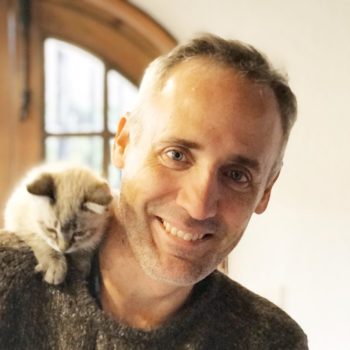
Luis Mancera Pascual is co-founder and CEO of Clover Bioanalytical Software in Spain. Clover develops Artificial Intelligence-based algorithms for the fast, streamlined identification of antimicrobial resistance mechanisms. Their approach is based on exploiting MALDI Mass Spectrometry data to mine the hidden information that separates resitant from sensitive strains. Clover collaborates with several important European hospitals and have received recognition from EU H2020 grants and the Governments of Spain and Andalucia. Luis’ responsibilities in the company include executive tasks to implement long-term strategy and making sure that everyone is happy and allowed to do their work and express their creativity to the highest degree. Luis is fully aware of the importance of the challenge we are all facing with AMR and fully committed to give our biggest effort to help fighting it.
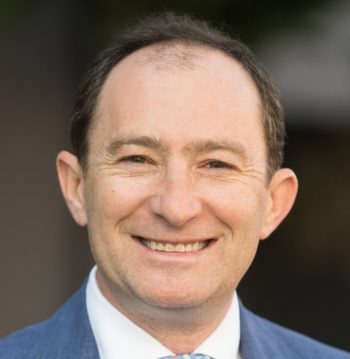
Jonathan Romanowsky is Co-Founder and COO of Inflammatix in the USA. His company Inflammatix is developing novel molecular diagnostic tests for acute infections and sepsis. Their approach based on reading the immune system (host response) enables them to develop tests that are fast and accurate. The tests will enable physicians in hospitals and clinics to confidently rule out bacterial infections and in doing so reduce the risk of antimicrobial resistance. Personally, I am responsible of ensuring that our test systems are commercialized worldwide.

Javier Moreno-Morales is a PhD Student at ISGlobal-University of Barcelona in Spain. His thesis focuses on discovering and optimizing novel antimicrobials and efflux pump inhibitors against multi-drug resistant Gram negative bacteria. Javier is interested in drug development and AMR tackling policies. As a member of the AMR Initiative at ISGlobal, he enjoys science communication and collaborates in raising awareness about AMR locally.
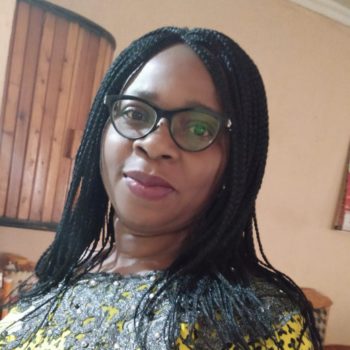
Ifeoluwa Akanni is a pharmacist, public health consultant with over three decades of experience spanning private, clinical and public health at ABU Zaria in Nigeria. In the community, I have been involved in educating clients visiting the community pharmacy on rational antibiotic use and as a hospital pharmacist, was a member of the infection control team, where I created awareness among colleagues and other health professionals on importance of effective antimicrobial stewardship. My passion for antimicrobial resistance led me to carry out a recently concluded a research on antimalarial drug resistance. As part of my ongoing PhD program, I am currently working on a research on antibiotic resistance in chronic wounds infections with particular focus on S. aureus in immuno-compromised patients
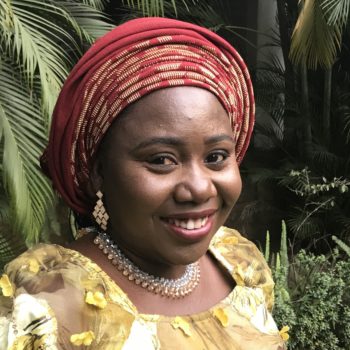
Mabel Aworh-Ajumobi is an AMR Surveillance Pillar lead for Animal Health sector in Nigeria and AMR Surveillance Fleming Fund fellow working at the Federal Ministry of Agriculture and Rural Development, Department of Veterinary and Pest Control Services in Nigeria. Mabel is an Epidemiologist with more than a decade of experience in veterinary epidemiology, public health, research and leadership among others in government focusing on food safety, AMR and Animal welfare. Currently a Fleming Fund fellow on AMR surveillance with mentors at the Denmark Technical University. Previously a PHD visiting scholar at North Carolina State University, Raleigh. Desirous of making a difference through research especially in addressing gaps identified during the Nigerian AMR situation analysis with the ultimate goal towards improving the health of the African people by enhancing food safety and reducing the burden of AMR. A goal-getter irrespective of the challenges with good interpersonal skills and a passion for learning. Current research is titled “Multi-drug resistant E. coli in Humans, Poultry and Poultry Environment in the Federal Capital Territory, Nigeria: Potential Risk for Human Health.
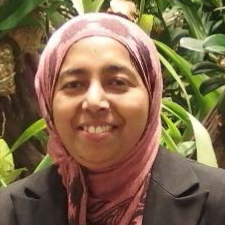
MHF Sakeena is a Senior Lecturer at Department of Pharmacy, University of Peradeniya, Sri Lanka. She is a Pharmacist and member of the Pharmaceutical Society of Sri Lanka (PSSL), Commonwealth Pharmaceutical Association (CPA) and International Pharmaceutical Federation (FIP). She is passionate about research in antimicrobial resistance (AMR) and infection control. Sakeena has recently completed her PhD at Sydney Pharmacy School, The University of Sydney, Australia. Primary focus of her PhD research was on antibiotic use and knowledge on AMR among young adults in Australia and Sri Lanka. She published her research work in high impact factor journals. Currently, she is looking towards implementation of pharmacist-led antimicrobial stewardship programmes in Sri Lankan hospitals.
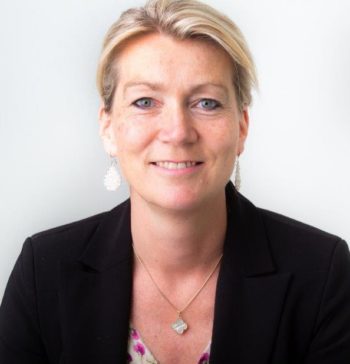
Brigit van Soest-Segers received her pharmacist degree from Utrecht University. For more than 20 years she has a working experience in developing policy and management of multidisciplinary programmes on various sides of the pharmacy sector. For more than a year Brigit has been Programma Manager foor sustainable pharmacy. This is a unique position in leading the coalition sustainable pharmacy of the Dutch Association of Innovative medicines (VIG), of Biosimilars and Generic medicines (BOGIN), of self medication (Neprofarm) and of pharmacists (KNMP) in The Netherlands. The mission of this coalition is to minimalize the footprint in the lifecycle of a medicine with the focus on sustainable development, production, use and waste.
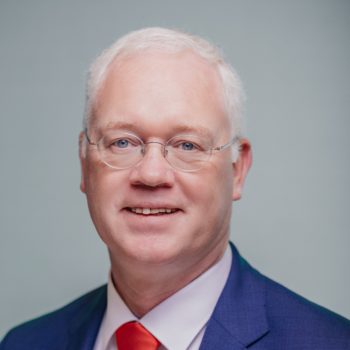
Tom Vereijken worked for over 20 years with the Dutch water technology company Paques B.V. on design and performance of industrial wastewater treatment facilities in The Netherlands. He is co-founder of the European Water Partnership and co-initiated a European system to measure and verify progress in sustainable water management, the European Water Stewardship (EWS). As director of the Water Stewardship Academy he takes concrete steps to combat diffuse pollution of water with focus on medical and agriculture/food sectors. Tom joins the Board of Dutch Water Authority Zuiderzeeland, is Ambassador to Water Europe and a Full member of the Club of Rome – EU Chapter. He co-edited Elsevier’s ‘Treatise on Water Science’ (ISBN-13: 9780444531933) and contributed to several other recent books and European projects. Tom Vereijken received executive MBA-degrees from Nyenrode Business University (NL) and the University of Rochester (NY) and was decorated by the University of Valencia.
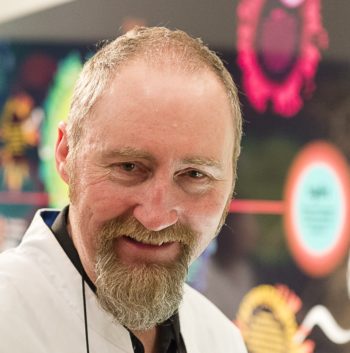
John Hays is an Associate Professor at the Erasmus University Medical Centre Rotterdam (Erasmus MC) in The Netherlands. John Hays is an associate professor in the Department of Medical Microbiology & Infectious Diseases of the Erasmus University Medical Centre Rotterdam. He has been involved in several EU projects investigating antibiotics and antimicrobial resistance and is particularly interested in (the implementation of ) Point-of -Care diagnostics for microbiology and AMR.
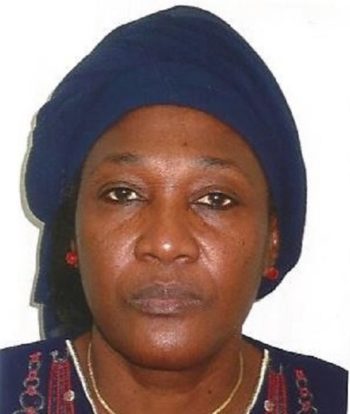
Rianatou Bada Alambedji is a Professor of Microbiology and Immunology at the Ecole Inter-Etats des Sciences et Médecine Vétérinaires de Dakar in Senegal. She has conducted research on antimicrobial resistance since 2004. These studies were mainly focused on E. coli and Salmonella of avian origin. In 2012, she has been involved in a project on triangulating AMR in animal, human and food. Furthermore, Rianatou has been, from 2016 to 2019, a focal person of OHCEA in Senegal. As such, she facilitated conferences and trainings on AMR for undergraduate students and health professionals (Physicians, veterinarians, pharmacists, biologists). Rianatou is looking forward to expanding her research area to other bacteria and other animal species and to set up collaborations to deepen her studies in the molecular field of AMR. She deeply would like to contribute in the implementation of an integrated AMR surveillance network in west Africa.

Patrice Allibert is a visionary person, an entrepreneur with international experience with a large worldwide network and is living in Canada. His domains of expertise are Molecular Diagnostics, Infectious Diseases and AMR. He was the CEO of GenePOC, launched 4 tests cleared by FDA, CE and Health Canada and revogene instrument. From 2006 to 2012, Patrice acted for BD as VP R&D Molecular Infectious Diseases. He was a key actor for the acquisition of the BD MAX. From 2001 to 2006, he worked with Merial as Corporate Director for Bioanalytical Development. He played a key role in the development of multiple new animal. He began with bioMérieux, in 1986, installing the Molecular activity and launching the first HLA-DR molecular test. He owns a PhD in Molecular Biology and acted as an expert for the European Community and as a board member of the Institute of Infection and Immunity of the Canadian Institute of Health Research.
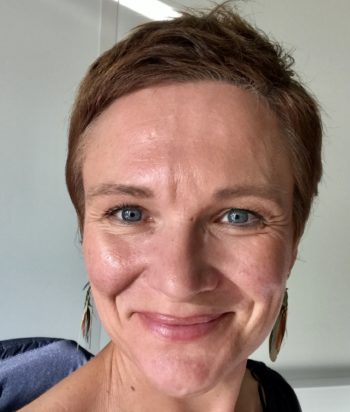
Sandrine Payrard is a clinical advisor within the Bacteriology Team at Evotec ID Lyon, France. She has been working in research and development in the pharmaceutical industries for more than 20 years. She has expertise in clinical development in Oncology, and Infectious Disease with focus on antibacterials. Sandrine is currently part of the Ethics Advisory Board of the IMI ENABLE consortium.
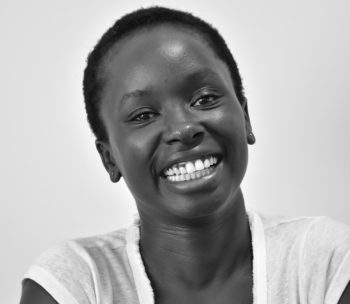
Anne Amulele is a PhD student registered at Open University and based at KEMRI Wellcome Trust Research Programme in Kenya. Her current focus is to investigate the effect of multi-drug resistance on the fitness and pathogenicity of carbapenem resistant Gram negative bacteria isolated from patients admitted to hospitals in Kenya. The aim of the study is to provide evidence for antimicrobial stewardship and infection control measures in the country in order to tackle AMR in the region.

Maria Jose Ruiz Alvarez is a Scientific officer and Researcher working at the Research Coordination and Support Service, Istituto Superiore di Sanità in Italy. Maria Jose is a specialist in Clinical Microbiology at the Researcher in the Coordination and Research Support Service in the Istituto Superiore di Sanita of Roma, and Scientific Officer at the Department of Internalization and Promotion of research infrastructures on the Directorate-General for Research and Innovation in Health of the Italian Ministry of Health. Support functions representing the Ministry of Health in the health research field is one of her activities and responsibilities in the field of biomedical research. The Italian research support activity at the international level is the basis of the strategic guidelines established by the Ministry, specifically in the Antimicrobial Resistance Area.
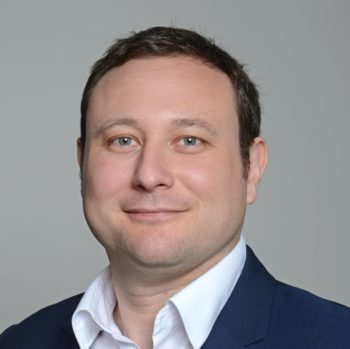
Enrique Castro-Sánchez is Lead Academic Research Nurse at the Health Protection Research Unit in AMR and HCAI at Imperial College London, UK. Enrique is researching on behaviour change and health literacy to improve infection prevention and antimicrobial use. He is also an Honorary Consultant Nurse in Communication and Patient Engagement at Imperial College Healthcare NHS Trust, and NIHR Academy Senior Nurse Research Leader. Enrique research interests include health literacy, health inequality and policy influence in infectious diseases. He has a PhD in Nursing and an MPH. His clinical experience includes tropical and infectious diseases, tuberculosis, HIV and STIs. He has consulted to the WHO on leadership for the Core Components in IPC, is a Florence Nightingale Foundation Scholar, associate editor of BMC Public Health, PLOS ONE and JAC-AMR journals, Fellow of the European Academy of Nursing Science, and Emerging Leader in International Infectious Diseases in 2016 by the International Society for Infectious Diseases.
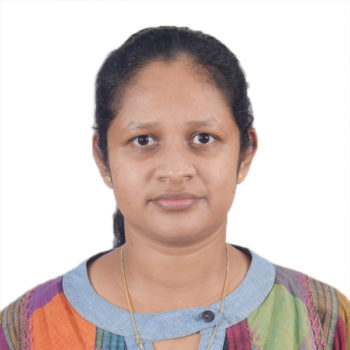
Dhakshila Niyangoda is a Lecturer at the University of Peradeniya in Sri Lanka. She works at the Department of Pharmacy, Faculty of Allied Health Sciences, University of Peradeniya. She is a registered Pharmacist in Sri Lanka. Dhakshila had obtained both B. Pharm. degree and M. Phil. from the University of Peradeniya. She is looking forward to conduct studies on antimicrobial drug resistance.
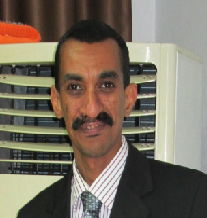
Ayman Waddad is an Assistant Professor in Pharmaceutics at the Department of Pharmaceutics, Faculty of Pharmacy, University of Gezira, Sudan. Ayman is teaching both undergraduate and postgraduate students the following courses: Physical Pharmacy, Solid dosage forms, Liquid dosage forms, Novel drug delivery systems, Pharmacokinetics and Biopharmaceutics. Also Ayman supervises Postgraduate students: he is involved in supervision and co-supervision of numbers of students with focus in development of different formulations. He suggested to establish a group of research focusing AMR and implementation of antibiotic stewardship objectives. Ayman spent three years as postdoc in Prof. Thirumala Govender lab, University of KwaZulu-Natal, South Africa where his research focus was on developing novel drug delivery systems to combat antibiotic resistance. Now Ayman is initiating a research group to focus on how to implement the objectives of antibiotic stewardship in Sudan. The duration of the project is for three years. The first year will be situation assessment. The second and third years will be interventional studies.
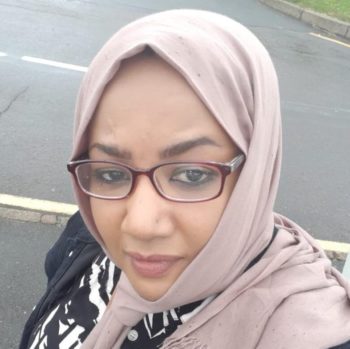
Shima Abdalla is a Ph.D. student doing a study about antibiotic-resistant E.coli in pigs using the (farm to fork) Approach at the University of KwaZulu-Natal in South Africa. At the moment Shima is finalizing her Ph.D. degree in molecular epidemiology of antimicrobial resistant E.coli strains isolated from pigs in KwaZulu -Natal (Farm to fork). Her masters was in Prevalence and antibiogram of Staphylococcus aureus among chronic supperative otitis media patients in Wad Madani, Sudan. Recently, she joined several laboratory courses regarding the molecular and bioinformatic techniques. Shima is looking forward to continuing research in antimicrobial resistance causes, consequences and how to limit these.
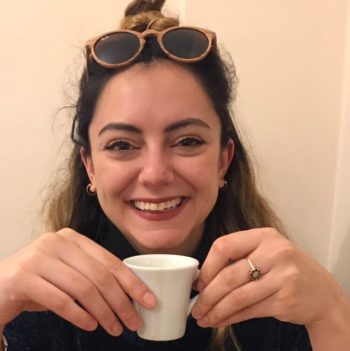
Anjuli Borgonha is a Communications Manager at the Lancet Countdown on Health and Climate Change in London, UK. Anjuli is currently working on health and climate change, but has a keen interest in AMR. In 2019 she completed a Masters thesis in social change communications examining antibiotic resistance behavior change communication campaigns. She is really interested in how best to communicate the complexities of AMR to the public and encourage a change in antibiotic seeking behaviors. Her wish is to contribute her communications skills to combat antibiotic resistance, recognizing that there are few communications experts with specific knowledge of AMR globally.
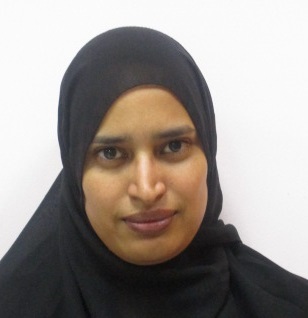
Khathija Bibi Sheik Aboo is a Medical Doctor in Medical Microbiology at the National Health Laboratory Service/University of KwaZulu-Natal, South Africa. Khathija qualified with MBChB from Nelson R Mandela School of Medicine, University of KwaZulu-Natal in 2005. She began specialising in Medical Microbiology through the NHLS KwaZulu-Natal Academic Complex and the Nelson R Mandela School of Medicine, University of KwaZulu-Natal in 2016. In 2019, she graduated with a Fellowship in Medical Microbiology through the Colleges of Medicine of South Africa. Khathija is presently completing her Masters in Medicine in Medical Microbiology through the NHLS KwaZulu-Natal Academic Complex and the Nelson R Mandela School of Medicine, University of KwaZulu-Natal.

Caleb Adewole is Chief Pharmacist at the Sacred Heart Hospital, Lantoro, Abeokuta, Ogun State in Nigeria. Caleb as a Nigerian pharmacist oversees and manages the pharmacy department of Sacred Heart Hospital, Lantoro, Abeokuta – a faith based organisation that happens to be the first hospital in Nigeria. As part of his public health advocacy against the menace of antimicrobial resistance, he creates awareness among his colleagues and other health professionals on the rational use of antibiotics. He also encourages doctors to as a matter of principle, send patients’ sample to the laboratory for microbial culture and sensitivity tests before the commencement of antimicrobial therapy. Caleb is actively involved in building the capacity of other health workers in the area of patient education on the rational use of antimicrobial agents. Caleb is a family man and he is married with children.

Prakash Pallipamu is a research consultant at the Microcare laboratory & Tuberculosis Research Centre in India. Prakash is working on Methicillin-resistant staphylococcus aureus and uropathogens. Basically he and his team concentrate on different community levels in villages. Trying to bring awareness among people in the use of antibiotics (both the advantages and disadvantages). Prakash is looking at mutations which alter the primary and secondary structures of particular genes. So far he and his team collected 6000 samples and analyzed successfully. The data will be published.
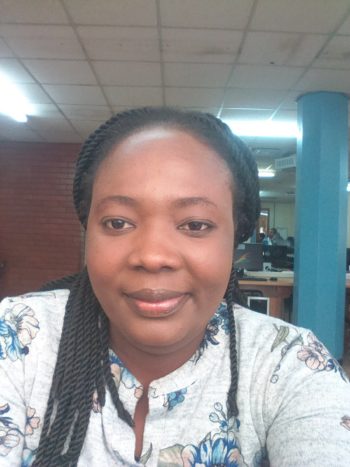
Dorcas Fatoba is a PhD student at the Antimicrobial Research Unit, University of KwaZulu-natal, South Africa. Dorcas is currently involved in a broader project on triangulating antibiotic resistance in animal, human and the environment (one health approach). She is presently working on Molecular Epidemiology of Antibiotic-Resistant Escherichia coli and Enterococcus spp. isolates from Agricultural soil. Furthermore, she will investigate the mechanism of resistance of the multi-drug resistant isolates via whole genome sequencing. Her passion is to the bring the public, health sector, policy makers and the government to the awareness of the role human activities play in promoting antibiotic resistance in the environment.
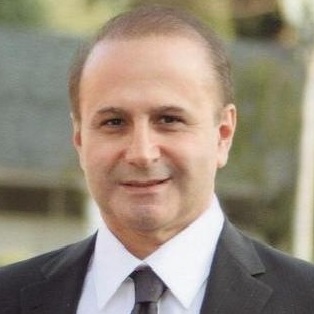
Ethan Levy heads the analytical team at Micra Biotechnologies and plans the related day to day activities at Micra Biotechnologies in the USA. Ethan founded Micra Biotechnologies in 1989 as an analytical/RD support group specializing in antibiotics, anti-infectives and related biologically active compounds . He obtained his Ph.D from St. John’s University in microbiology and biochemistry (1983) with the discovery of a new antibiotic from Candida krusei. In the years that followed his work focused on the development of rapid diagnostic systems for bacterial IDs and microbial susceptibilities. (General Diagnostics). Currently, at Micra Biotechnologies his team has helped bring to market a multitude of clinically important antibiotic drugs. With his 40 plus years experience with the 21CFR/USP bioassay formats Micra has been providing collaborative biopotency data for USP/EP/WHO antibiotic standards. Ethan is a strong advocate for better regulation and scrutiny of biopotency data together with a diligent surveillance program in place. He believes that AMR, in part, may be due to the prevalence of subpotent/substandard ABs on the market.

Rohit Gupta is a Microbiologist working at ESI Corporation in India. Rohit Gupta is an MD Microbiology from Kasturba Medical College, Manipal (Karnataka). Rohit has experience in the Medicine department (OPD+Emergency) in ESIH Rohini in Delhi for 7 years. Currently Rohit is working as Medical officers. His areas of interest are infectious disease, hospital infection control, Antimicrobial stewardship and research.

Misha Hussain is a British journalist, specializing in global health and based in The Netherlands. Misha is reporting on conflict, contagion and climate change. In West Africa, he covered the controversial opening of Africa’s first free clitoral restorative clinic for victims of female genital mutilation, run by an alien-worshiping sex cult in Burkina Faso. He documented forced-begging of children as young as six by renegade Qur’anic masters in Senegal and he was the first foreign correspondent to report from ground zero of the deadly 2014 Ebola outbreak. In South Asia, Misha produced rare footage of life in the makeshift Rohingya refugee camp in Bangladesh, which the UN described as amongst the most squalid conditions on Earth. Misha also worked as a consultant in aid and development for Médecins Sans Frontieres, the United Nations and the World Bank. In 2017, he completed an MSc in Global Health Policy at the London School of Hygiene and Tropical Medicine specializing in infectious disease.
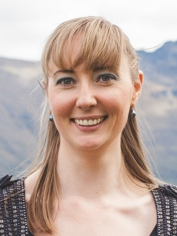
Sarah Kirk is Head of the Secretariat at Global TB Caucus in the United Kingdom. The Global TB Caucus is an international parliamentary network with 2500 members in 159 countries who build the political will to End Tuberculosis. Prior to that Sarah worked in public health and advocacy in the NGO and Government sectors for various organizations focusing on tuberculosis (TB), child health, sport for development, and, sexual and reproductive health and rights in countries across the Asia Pacific and Southern and Eastern African regions. She has also served on steering committees for regional and global TB civil society, patient advocate and community networks; and sits on the executive committee of the Australasian TB Forum.

Joanne Matthews in Australia. For Joanne Matthews, the global threats facing both planetary and human health are deeply personal. She advocates for interdisciplinary approaches and new funding models for solving antimicrobial resistance (AMR) – an interest that came about after her daughter became critically and chronically ill with AMR infection — but, unlike many, survived. As a consultant, speaker and writer, Joanne combines a background in senior public sector and not-for-profit policy and leadership with powerful lived experience. She is driven to find workable alternatives to antibiotics for people and animals in a bid to reduce the environmental impact of antimicrobials on the environment.
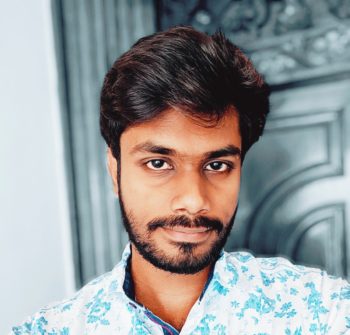
Pranavathiyani G is a PhD Student at the Pondicherry University in India. Pranavathiyani is a graduate research student at Centre for Bioinformatics, Pondicherry University, Puducherry, India. His research work is based on computational systems biology approaches to decipher molecular mechanisms for AMR in pathogenic microorganisms. He is also interested in application of phages for treating AMR bacterial infections. Pranavathiyani would like to contribute by creating resources for AMR awareness.
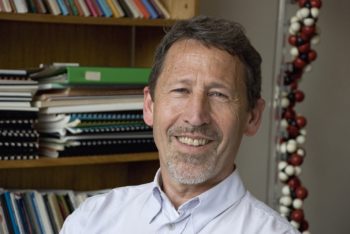
Ton Loontjens is an emeritus professor biomedical materials and antibacterial coatings at the University Groningen in The Netherlands. The research of his department is focused on biomedical and healthcare polymers. Ton and his team developed various antibacterial coatings for biomedical implants, as bacterial infection is the major mode of failure of implants. Another major problem is infections in medical care housing. Likewise they developed aqueous based antibacterial coatings for walls, floors, equipment of hospitals and elderly homes.

Nicola La Monica is a Senior Director Infectious Diseases and Vaccines Scientific Innovation at Johnson & Johnson in the United States. Nicola joined the J&J Boston Innovation Center in 2013. From 2009 to 2012 he was at Idera Pharmaceuticals in Cambridge MA, where he was VP of Biology. From 1991 to 2009, Nicola served most recently as Director of Antiviral Research at IRBM, Rome, Italy, a research site of Merck Research Laboratories. Prior to that, he held the positions of Director of Oncology and Director of Cancer Immunology and Genomics. Nicola has lead research efforts targeting HCV, has managed research teams involved in the development of cancer vaccines and cancer immunotherapy strategies. Additionally, he has been responsible for the evaluation of novel oligonucleotide-based compounds targeting TLRs as vaccine adjuvants or as therapeutic agents for the treatment of autoimmune diseases. Nicola earned his B.A. degree in Biology from the University of Rochester in 1982 and a Ph.D in Microbiology at Columbia University in 1988.
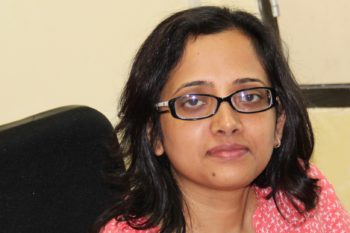
Susmita Chaudhuri is an Assistant Professor at Translational Health Science and Technology Institute (THSTI) in India. Susmita is an award winning innovator, with fourteen years of academic & industry experience as principal investigator & program coordinator in the field of Microbiology in India. In THSTI, she has been majorly working on innovative R&D solutions for diagnostic and therapeutic intervention for drug resistant bacterial infections. She is working on various rapid diagnostic solutions for bacterial infections of clinical importance. Her prototype rapid phenotypic antimicrobial susceptibility kit promises to reduce the culture-sensitivity turn-around-time to 3 hours directly from clinical sample. She is also developing alternative nano-metal formulations for biofilm inhibition ultimately for reducing surgical site infections. She is currently driving multiple inter-disciplinary programs funded by various funding agencies on different aspects of AMR.
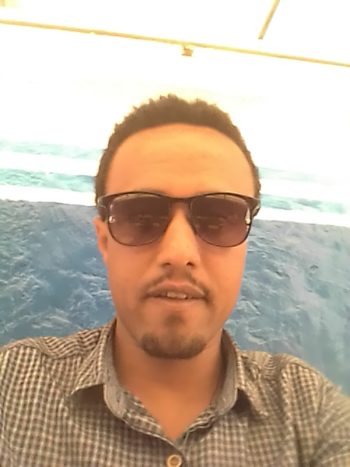
Mintesinot Nida is a QA officer at the Pharmacuticals supply Agency in Ethiopia. Mintesinot Nida is a pharmacist working at the Ethiopia pharmaceuticals supply Agency as QA officer. AMR is a major challenge for Africa including for his country Ethiopia. Selection of quality medicines and rational uses of medicine is one of Major responsibilities. By joining the Network he may be helped to know and to work on best performance on AMR.
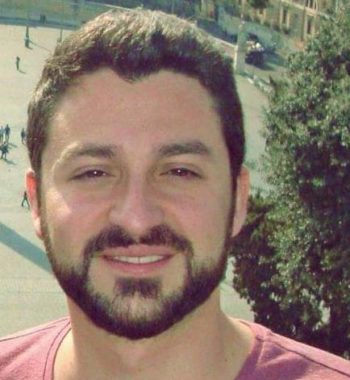
Alejandro Dorado Garcia is an International consultant working at the FAO in Italy. For 7 years Alejandro has participated in several international research consortia developing his career as epidemiologist in One Health topics. Since he joined FAO-UN early in 2018, he has been providing support to food and agricultural sectors on the implementation of the Global Action Plan on AMR. His professional experience includes project design, study monitoring and coordination, database preparation, statistical analyses, writing of scientific publications, participation in surveillance programs, capacity building, promotion of a responsible use of antimicrobials, good AMR practices as well as knowledge transfer between academia and government.
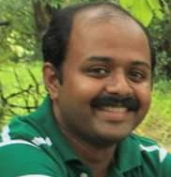
Jess Vergis is an Assistant Professor at the College of Veterinary and Animal Sciences, Pookode, Kerala in India. Jess presently serves at the Kerala Veterinary and Animal Sciences University as Assistant Professor in the Department of Veterinary Public Health. His areas of interest include antimicrobial resistance and its alternate strategies (antimicrobial peptide, nanoparticles), one health and molecular epidemiology of zoonotic diseases (enteric bacterial pathogens, listeriosis and coxiellosis).

Victor Kouassi is a Scientific Affairs Officer at the Global Antibiotic Research & Development Partnerships (GARDP) in Switzerland. Victor aids in the coordination of REVIVE, GARDP’s outreach activity which aims to support and educate the antimicrobial R&D community. REVIVE does this through publishing antimicrobial viewpoints, webinars and conference sessions. Victor holds an undergraduate degree in Physiology from the University of Manchester which included a placement year in the laboratories in the MRC Unit in Gambia and an MPhil degree in Infection & Immunity from University College London.
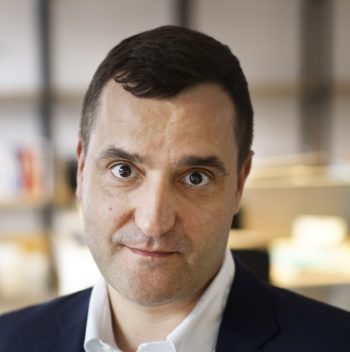
Piotr Garstecki is CEO and Co-founder of Scope Fluidics in Poland. Piotr is a full Professor at the Institute of Physical Chemistry of the Polish Academy of Science, in Warsaw, Poland. He obtained PhD in Chemistry from the Institute of Physical Chemistry PAS. He later conducted research as a postdoctoral fellow in the group of Prof. George Whitesides at the Chemistry and Chemical Biology Department at Harvard University in the USA. He currently leads the Research Group of Microfluidics and Complex Fluids at the Institute of Physical Chemistry in Warsaw. He co-authored over a hundred scientific publications and multiple patent applications. Scope Fluidics develops innovative projects in the field of diagnostics and health care. This includes the BacterOMIC system which is an automated culturing system delivering the most comprehensive information on bacterial susceptibility to all known antibiotics and on the resistance mechanisms.
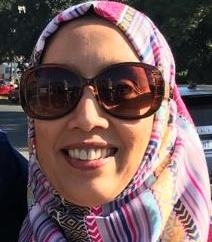
Saadiya Mangera is a veterinarian in South Africa. She graduated from the University of Pretoria in 2000 and then spent 9 years in the UK in a small animal practice. She is currently registered for her Masters degree at the University of Kwazulu Natal investigating antimicrobial resistant E.coli. Dr Mangera is passionate about antimicrobial resistance.
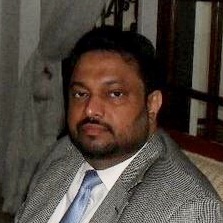
Jayantha Liyanage is the Team Lead/Country Head at PATH (Fleming Fund) in Sri Lanka. Jayantha is passionate about Public Health Professional leading & facilitating Global Health Programs. He is a Registered Family Physician who has been working in international public health for over 20 years and has extensive experience in managing partnerships, working with government, designing programs, supporting operations, project management, health management & health economics, health systems research. Jayantha has experience in working in a variety of technical areas including nutrition, maternal and child health, food safety & hygiene, reproductive health, health promotion & education, prevention and control of infectious /epidemic diseases.
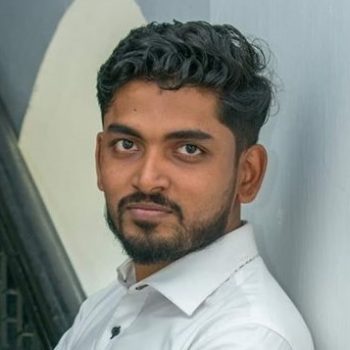
Dilan de Silva is a Temporary lecturer at the Department of Pharmacy, Faculty of Allied Health Sciences, University of Peradeniya in Sri Lanka. Dilan de Silva is a pharmacy graduate in Sri Lanka who is interested in involving researches related to community pharmacy, clinical pharmacy and some areas in pharmaceutical science as well. He is currently working as a temporary lecturer in the Department of Pharmacy, Faculty of Allied Health Sciences, University of Peradeniya and also involved in some ongoing researches. He is an active member of some community-based programs which emphasis the rational use of medicines (like antibiotics, addictive drugs etc.) in Sri Lanka and believes that to emphasis the quality of local health care system, international collaboration is very important.
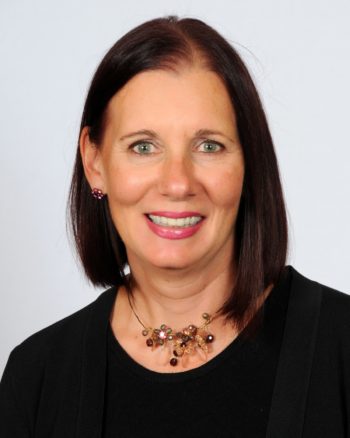
Debra Goff is involved in Global Antibiotic Stewardship at The Ohio State University, Wexner Medical Center in the USA. Debbie is an Infectious Diseases clinical pharmacist and Professor of Pharmacy at The Ohio State University. Debbie is a founding member of the antibiotic stewardship program (ASP). She has worked in hospitals across six continents helping to implement ASP. In 2012 she developed the OSU-South Africa pharmacists Train the Trainer antibiotic stewardship mentoring program. She received the 2019 OSU Distinguished International Outreach and Engagement Award for her work in South Africa. She is one of 25 global ASP experts selected by the World Health Organization to implement ASP in low middle income countries. She is passionate about connecting people worldwide in ASP. Debbie uses Twitter (@IDPharmD) to engage and educate her 6,750 Twitter followers. Her TedX talk on “antibiotics just-in-case” has been viewed over 21,000 times. She is passionate about helping patients and increasing awareness of antibiotic resistance.
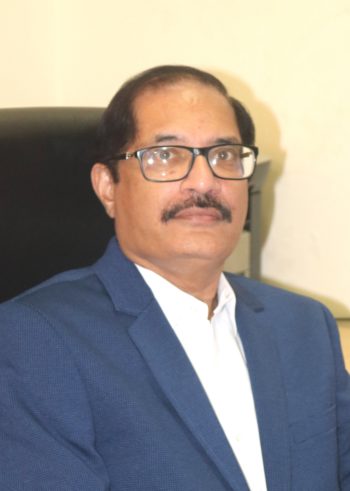
Pani Prasad Kurcheti is an AMR Researcher at the Central Institute of Fisheries Education in India. Pani Prasad is a Principal Scientist at the Central Institute of Fisheries Education in Mumbai. Pani is a veterinary microbiologist and working in aquatic animal health especially in AMR. He has developed a number of rapid immunodiagnostics for detection of bacterial and viral pathogens of fin fish and shellfish. He also developed IgY antibodies for passive immunization and control of diseases. He is heading one national project on AMR in fisheries and aquaculture.
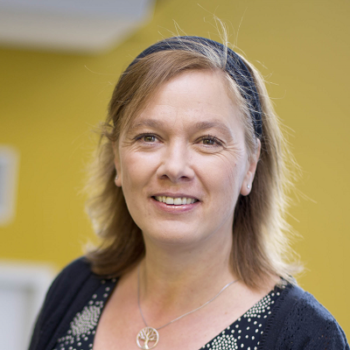
Akke Vellinga is an Epidemiologist working at the National University of Ireland, Galway in Ireland. Akke is a senior lecturer in the School of Medicine of the National University of Ireland, Galway. The focus of her research is to support appropriate prescribing of antibiotics through education and feedback for prescribers, patients and public. Over the years, the combination of epidemiology, statistical modelling and qualitative research to support implementation has been fundamental in her projects on antimicrobial resistance and prescribing. Her research focuses on analyzing and modelling AMR in relation to AMR/ prescribing/HCAI to design and evaluate interventions. Akke supervises graduate students as well as PhD and postdoc researchers and provides methodological support both as lecturer in health related courses and to individuals.

Direk Limmathurotsakul works as a Reseacher at the Mahidol Oxford Tropical Medicine Research Unit in Thailand. Antimicrobial resistance (AMR) is one of his main research areas. He estimated that 19,122 in Thailand in 2010 represented excess mortality caused by AMR. He showed that the global burden of AMR estimated in previous studies are not comparable because of their different methodological approaches, assumptions, and data used to generate the estimates. Direk developed “AutoMated tool for Antimicrobial resistance Surveillance System (AMASS)” (www.amass.website) as an offline, open-access and easy-to-use application that allows local hospitals to promptly generate surveillance reports from routinely collected electronic databases. Direk also advocated the concept of ‘antibiotic footprint’ as a tool to communicate to the public the magnitude of antibiotic use in humans, animals and industry. (www.antibioticfootprine.net). To support communication with lay people and solve the problem of jargon surrounding AMR in local languages, he also initiated the AMR Dictionary (www.amrdictionary.net) and is he currently evaluating its impact.
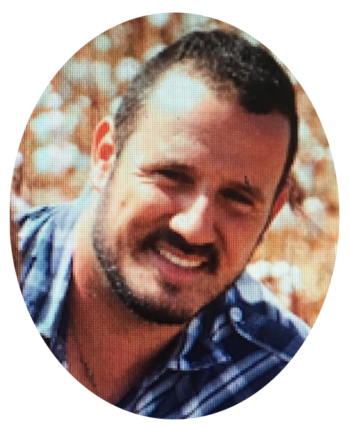
Amit Elbaz is the CEO of Life Matters in Israel. Life Matters is a pioneer company engaged in the AMR area. The era of antibiotics as medicine to treat infectious diseases is about to end according to the World Health Organization (WHO), as well as to scientific evidence which shows bacterial resistance to antibiotics of last resort. Amit is involved in R&D to promote the commercialization of an innovative treatment which in contrast to antibiotics is not a growth inhibitor, or in other words- bacteria killer. He and his team are developing a new class therapeutics that target key drivers of resistant gram- pathogens by signaling the bacteria to remain in the planktonic mode rather than developing into the biofilm mode.

Giovanna Forte is the CEO of Forte Medical Limited in the United Kingdom. Giovanna is a founding director of Forte Medical Limited, a disruptor in the routine process of urine collection. In 2002, her primary care physician brother Dr Vincent Forte identified contaminated urine specimens as a significant cause of unnecessary antibiotic prescribing in primary care settings. Giovanna joined forces with Vincent to develop a midstream urine collection system that delivers accuracy for patients and clinicians alike, reducing contamination to between 0% and 2.5%. She also now campaigns for urine collection to meet a gold-standard protocol, guaranteeing accurate diagnoses and prescribing for patients, giving urine rightful parity with its diagnostic counterpart, blood.
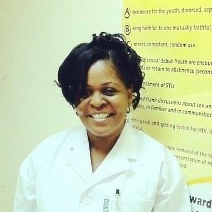
Danai Tavonga Zhou is a University lecturer at the University of Zimbabwe College of Health Sciences in Zimbabwe. Danai T is a senior lecturer of Clinical Biochemistry and Genetics at University of Zimbabwe and is a postdoctoral fellow at the University at Buffalo, State University of New York, in the US. She is passionate about the application of genomics in health research, including predicting drug response, understanding disease mechanisms, identifying disease outbreak origins and tracking transmissions, determining causes of infectious diseases and identifying causes of antimicrobial resistance (AMR). During her PhD study, at University of Oslo, Norway, she published papers describing HIV drug resistance mutations. She is currently a recipient of a two-year competitive NIH Fogarty International Center, HIV Research Training Program (HRTP) Postdoctoral fellowship. Her postdoctoral research focuses on pharmacogenomics of antiretroviral drugs. She continues to coalesce collaborators to strengthen training of genomics to health and biomedical researchers and professionals in low- and middle-income countries; with the aim of reducing AMR and improving patients’ treatment outcomes.
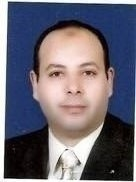
Wagih Ghannam is a consultant general surgery working at the armed forces hospital Jazan in Saudi Arabia. Wagih is a professor of general & trauma surgery at the Mansoura faculty of Medicine Egypt and a consultant of general surgery at Kingdom of Saudi Arabia. Wagih has a special interest in Antibiotic stewardship programs and surgical site infections and the management of surgical infections. He is a member of infection control committee in his institutions.
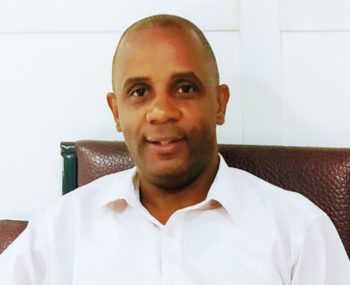
Richard Valimba provides technical support to MOH to implement AMS activities at MSH in Tanzania. Fighting the spread of AMR requires multifaceted efforts so let us join hands to safeguard the medicines we have today for the future. Communicating appropriate AMR related messages, implementing stewardship programs together with IPC may form a cornerstone in the fight against the spread of resistant trends so let us reach our communities with these key weapons to held them understand the war ahead of us. Thank you!
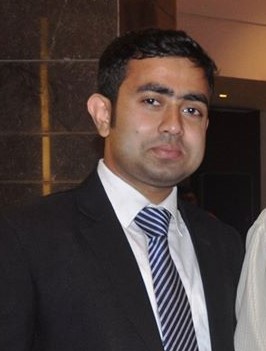
Moudud Sujan is a Health Journalist working at The Daily Star in Bangladesh. Moudud is a Dhaka-based health journalist who is currently working as a Staff Correspondent at The Daily Star, the English-language daily in Bangladesh. He has been creating awareness and pushing the policymakers in Bangladesh to take action to stop over-and-misuse of antibiotics. He is collaborating with the health experts and different organisations including the WHO. His unique piece of reporting in April 8, 2018 published on the newspaper was a whistle-blower indeed. After his reporting, the high court ruled the government to take immediate steps to stop over-the-counter sale of antibiotics. The threat of anti-microbial resistance is now a well-known topic to all: from mass people to policymakers in the country. He looks forward to continue his efforts in fighting AMR in this region.
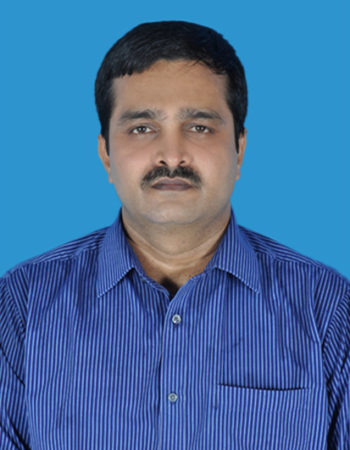
Anand Kumar is a Professor of Veterinary Microbiology working at the NTR College of Veterinary Science, Sri Venkateswara Veterinary University, Gannavaram, Andhra Pradesh in India. Anand is a veterinarian and also an immunologist by training. He has been working on Antimicrobial Resistance (AMR) in bacterial pathogens of veterinary importance for the last more than 15 years. The AMR pattern in bacterial pathogens from different samples collected from livestock and poultry are regularly assessed. He is involved in a pilot research project on AMR under One Health is in progress. Likewise he is involved in the National network program Indian Network for Fisheries and Animal Antimicrobial Resistance (INFAAR). As a team member Anand has been working on certain phytochemicals and natural products that exhibit anti bacterial properties. He underwent the ATLAS training by the FAO.

Nadine Bongaerts works as a Post-doc at INSERM / CRI in France. Nadine Bongaerts is a post-doctoral researcher in synthetic biology at INSERM and the Centre for Interdisciplinary Research in Paris where she works on the development of engineered E. coli strains with tuberculosis drug targets as a cost-effective, rapid and easy-to-scale tool for antibiotic discovery. She previously studied in the Netherlands and holds a bachelor and master degree in Life Sciences & Technology from the University of Leiden and TU Delft. In addition to her scientific career, she is actively bridging the world of science with business through her role as board member of the international non-profit organisation Hello Tomorrow for deep tech innovation and global faculty member for Singularity University.

Neusa Torres is a Researcher and lecturer at the Instituto Superior de Ciencias de Saude-Iscisa in Mozambique. Neusa is a Health Anthropologist and a Public Health Professional. She is involved as a lecturer and researcher at the Health Sciences High education Institution in Maputo, Mozambique. Neusa is very passionate about Health seeking behavior and utilization of medicines and health care services. Currently she is conducting research on the practice of self-medication with antibiotics in Maputo, Mozambique. Part of her research has been published. The results show a concerning and high indiscriminate utilization of antibiotics in Maputo city. She advocates a much better utilization of antibiotics!
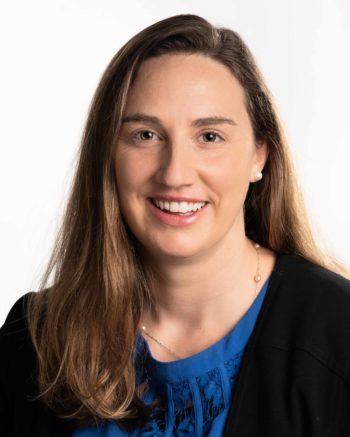
Alison Kuchta is the Clinical Science Director at Roche Molecular Diagnostics, USA. Alison is a Pediatric Infectious Physician with a research background in drug resistance genetics for use in epidemiological tracking and drug target discovery. She completed a combined MD/PhD program at Virginia Commonwealth University in Virginia, USA with a focus in microbiology and molecular genetics. She completed her Pediatrics residency at the University of California San Francisco and then completed combined fellowships in Pediatric Infectious Diseases and Clinical Pharmacology at the University of California San Francisco. During her academic appointment, her research focused on novel methods to track the epidemiologic spread of drug resistance mechanisms. Alison is currently a Clinical Science Director for Roche Diagnostics focused on the antimicrobial resistance portfolio. In her current role, she advises research and development teams, as well as designs and oversees clinical registration trials for related diagnostics products.
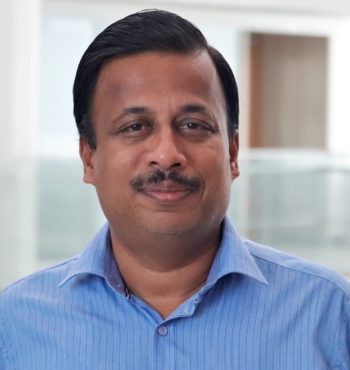
Jayaseelan Murugaiyan is professor of Biotechnology & Head, Department of Biology & Biotechnology at SRM University AP, Andhra Pradesh in India. Jayaseelan is an expert proteomics scientist having applied quantitative proteomics analysis for antimicrobial resistance and qualitative proteomics technique for rapid species identification of microorganisms, nematodes and insects. His laboratory is working on proteomics analysis of antimicrobial resistance and rapid detection of antimicrobial resistance.
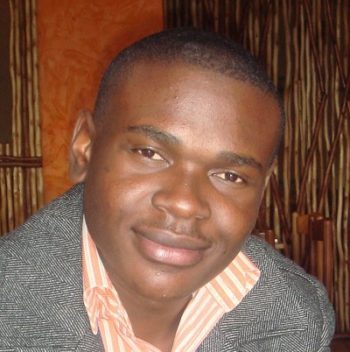
Mutshiene Deogratias Ekwanzala is a PhD candidate at the Tshwane University of Technology, South Africa. Mutshiene studies at the Water Research Unit of Tshwane University of Technology (Pretoria, South Africa). He holds a Baccalaureus of Technology in Biotechnology (Vaal University of Technology) and a Master of Technology in Water Science and Technology (TUT). He worked as a Microbiologist at MicroChem Lab Services. His doctoral research uses genomics and metagenomics approaches to track and characterize environmental resistome in a bid to develop a genomic webtool to geospatial link environmental and clinical isolates at genomic level. He has authored several research articles in peer-reviewed journals.
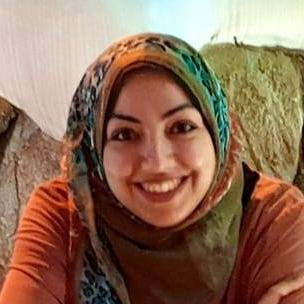
Hend Ibrahim is a senior clinical pharmacist and medication safety officer working at the Dar alFouad Hospital in Egypt. As a medication safety officer she is one of the team that handles the stewardship program in the hospital. She is involved in decisions to treat infections diseases. Hend is board certified in both general and critical care pharmacotherapy. She is also a preceptor in training programs for undergraduates and postgraduates in different hospitals and universities.
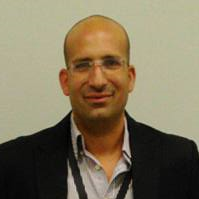
Moshik Cohen-Kutner is the Founder and CEO of Omnix Medical in Israel. Omnix Medical is a preclinical stage biopharmaceutical company, developing novel antibiotics to combat drug-resistant bacteria, a highly common problem in chronic conditions and in modern hospitals. Omnix Medical’s technology will tilt the odds in the battle against resistant bacteria and improve the lives of many people worldwide.
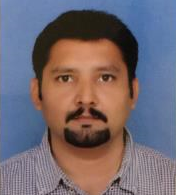
Anurag Zaveri is the Director and QM of Biocare Research India Pvt. Ltd. in India. Anurag had his doctoral research in the field of antibiotic research. He is one of 30 researchers whose work would be stored in the NHS data repository. Furthermore, in association with the Bill and Melinda Gates Foundation and NHS, UK, his isolates were subjected to be sequenced. Anurga is very much interested in international collaborations in order to achieve and understand global trends of antibiotic resistance.
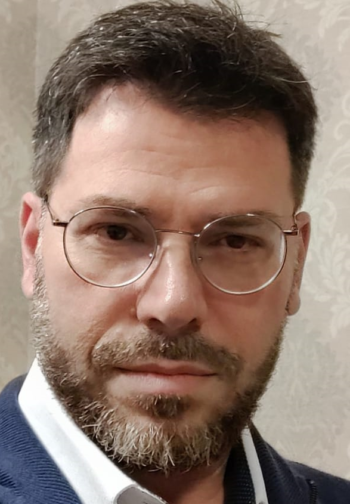
Ziad Daoud is Professor of Microbiology and Chairperson, Head of Microbiology lab at the University of Balamand and Saint George Hospital in Lebanon. Ziad is also chair of the Department of Biomedical sciences at the Faculty of Medicine and Medical sciences- University of Balamand, He also serves as head of the Clinical Microbiology Laboratory at the Saint George Hospital-University Medical Center, Beirut, Lebanon. His research area is focused on Antimicrobial Resistance and its mechanisms, the spread of this resistance in the one health context.
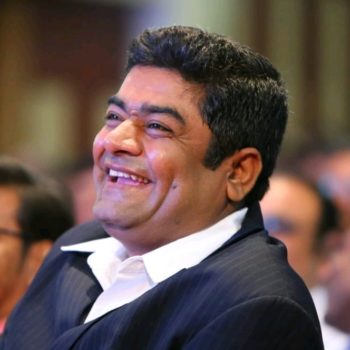
Dhanji Rajani is a Consultant Microbiologist working at Microcare laboratory and Tuberculosis Research Centre in India. Dhanji is am attached to culture and drug susceptibility testing and aware about drug resistance to patients and students. His laboratory is also working on drug susceptibility testing for Tuberculosis by culturing as well as by Molecular diagnosis to treat patients.
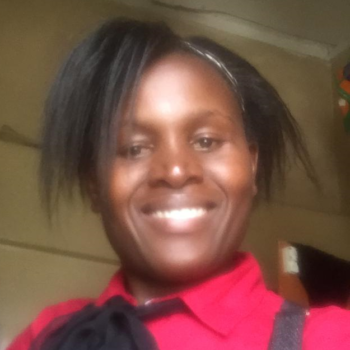
Sophia Kuve is a Researcher at the Technical University of Kenya in Kenya. She is currently a student at Jomo Kenyatta University of Agriculture and Technology. Sophia wants to grow further in AMR related research and field. She is pursuing her Master of Science in Medical Microbiology. Her current research is on community based multi drug resistant E. coli and K. pneumonia. She is looking forward to work on stomach microbiota.
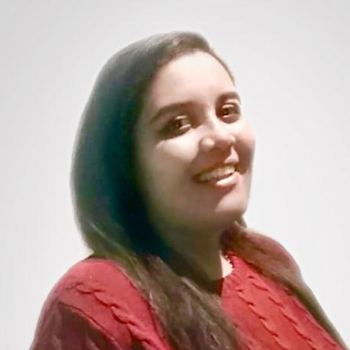
Yara Khalaf is an Infectious Disease Clinical Pharmacist in charge of Antimicrobial Stewardship Program at the Joint Comission International (JCI) Accredited Hospital in Egypt. Yara is a Board Certified Pharmacotherapy Specialist, working as an Infectious Disease Clinical Pharmacist in charge of the Antimicrobial Stewardship Program. Yara I was the Moderator in the Medication Management and use session in the Joint Commission Re-accreditation survey (May 2019), as well as a member at ReAct Africa (International organization for antimicrobial resistance issues:(speaker and a chairperson at the event that took place in Nairobi, Kenya (July 2019), a reviewer in BMC infectious Diseases, speaker in numerous events related to (Infectious Diseases, Clinical pharmacy), preceptor in training programs (antimicrobial stewardship-Clinical pharmacy) for undergraduates, postgraduates in different universities and currently registered in the master’s program of public health and epidemiology.

Silvia Chepkoskei works as a technical Laboratory Analyst at the Kenya Bureau of Standards in Kenia. Silvia is a microbiologist with a bachelor’s degree in Microbiology, currently taking MSc. in Microbiology at The University of Eldoret, Kenya and working on Antibiotic resistance in waste water. She has a passion for Antimicrobial resistance especially in the environment that eventually affects human and animal lives. She hopes to join hands with great leaders who work tirelessly to find solutions to the rapidly growing problems associated with AMR. Silvia also hopes to create awareness on the effects of AMR both to human and animal life in her community and country. Joining the network will help her achieve her goals by networking with great ambassadors to this worthy and fundamental element of improving livelihood.
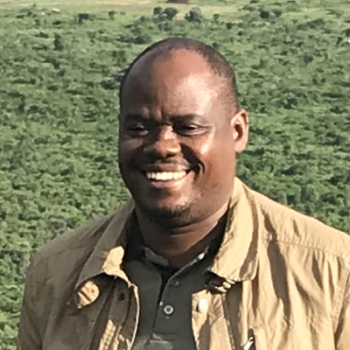
Lawrence Mugisha is an Associate Professor working at the Conservation & Ecosystem Health Alliance in Uganda. Lawrence is a Veterinarian, a researcher and academician using the One Health approach to undertake research in infectious/zoonotic diseases and antimicrobial resistance at human, animals and environmental interface. Through Conservation & Ecosystem Health Alliance (CEHA)-NGO he is involved in research, capacity building and advocacy. Lawrence undertakes antimicrobial stewardship and the One Health Advocacy at community, local governments and other institutions.
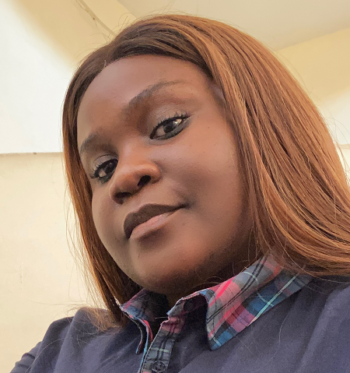
Yewande Alimi is the Antimicrobial resistance (AMR) Program Coordinator at Africa Centres for Disease Control and Prevention, Africa Union. Yewande is a trained Veterinary Surgeon and holds a Masters in Public Health (International Health) from the University of Nottingham. Drawing on a range of experience including veterinary medicine, public health policy and research, she currently leads the implementation of the Africa CDC Framework for AMR Control in Africa Union member states. She also co-leads the African Union Taskforce on AMR. Yewande leads One Health activities within Africa CDC, across the African Union organizations, and member states. Before joining the Africa CDC, Yewande practised as a Veterinary Surgeon in Nigeria. She worked as a research analyst at the Ludwig Boltzmann Institute of Health Technology Assessment, Austria and CompanDX, United Kingdom. She is also the One Health Technical Advisor for Global Emerging Pathogens Treatment Consortium [GET AFRICA].
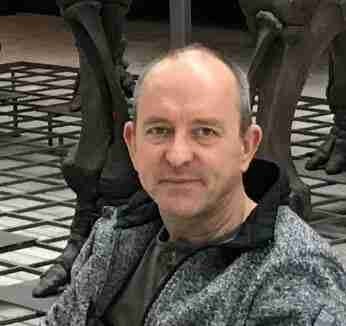
Alfons Krug is involved with New Business Development at the HUMAN Gesellschaft für Biochemica und Diagnostica mbH in Germany. Alfons is a scientist by heart, and concentrates his efforts to improve the health care systems in the developing and emerging countries. Test first then prescribe is his idea how to slow down the development of increasing resistances.
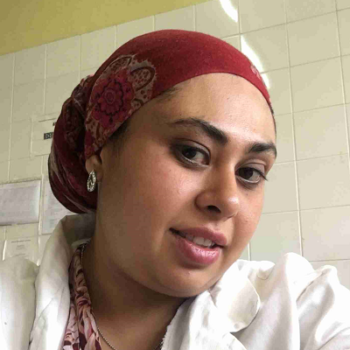
Faheema Choonara is a Lab technologist/microbiologist/Phd student at the University of Malawi College of medicine/Norhed project/Kamuzu central hospital in Malawi. Faheema worked at a government central hospital in Malawi for 8 years. At the time of her appointment the microbiology lab was under-utilised by doctors and clinicians and most treatments were symptomatic. Major challenges were lack of resources in the lab and constant loss of patient results. Faheema and her colleagues advocated for supplies through a colleague in the UK and she was awarded a scholarship to do a PhD in antibiotic resistance. Faheema was able to provide supplies to the lab, created WhatsApp groups for communication of results. Also ward and lab liaison officers were appointed and awareness and training for wards staff on antibiotic resistance was set up. They also established an antibiotic stewardship program at the hospital involving wards pharmacy and lab.

Niamh Mohan is an R&D Lab Technologist at Nuritas in Ireland. Niamh believes that many of the answers to the the most complex problems in biology may lie in nature. Her early academic career focused on understanding the importance of the compounds within food, and the impact these could have on health. These ideas evolved in her PhD to explored how peptides data mined from natural plant sources could be used to effectively eliminate pan drug resistant clinical isolates of Acinetobacter baumannii. In this work, they identified novel, natural, effective and non toxic peptides which had a low propensity for inducing resistance and could reverse colistin resistance. Niamh is passionate about exploring novel, natural compounds which offer solutions to the complex antimicrobial resistance crisis which poses such a massive global threat. According Naimh we need to tackle AMR through a combined approach, and together try to create a brighter future for the next generation and continue to win the race against bacteria infections.
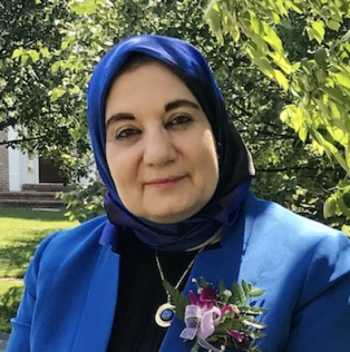
Mina Izadjoo is the President and Chief Science Officer of Integrated Pharma Services and Omni Biosciences in the USA. Formerly, she was “Senior Distinguished Scientist” and Director of the Diagnostics and Translational Research Center (DTRC) of the Henry Jackson Foundation (HJF) for Advancement of Military Medicine. She served as the Microbiology Division Chief at the Armed Forces Institute of Pathology in Washington DC. She is the President-elect of Washington Academy of Sciences. Mina received her PhD in Microbiology from Louisiana State University in 1992 followed by six years of post-doctoral fellowships at Texas A&M University and NIH. Her research efforts have been focused on developing therapeutics for antibiotic resistant pathogens. She has a patented technology for standardized growth of microbial communities. Mina is the recipient of numerous awards including the 2017 JWC Best Innovation in North America Award. In 2018, she received the FCC Leader of the Year Award.

Ed Septimus is a board certified adult ID with joint academic appointments at Harvard Medical School in Boston, USA and Texas A&M College of Medicine. Ed has been involved in stewardship, antimicrobial resistance, sepsis, and infection prevention. He has published multiple articles on stewardship and sepsis and was a co-author on the updated IDSA/SHEA implementation guidelines. Ed was also part of the trans Atlantic Antimicrobial Task Force.
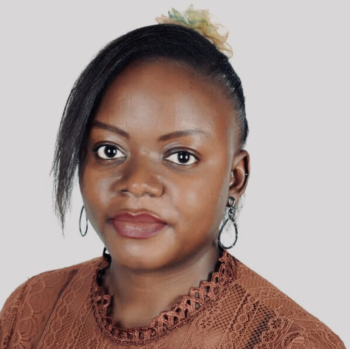
Winnie Nambatya is the technical adviser for the Common Wealth Pharmacist’s Association under the project, Common Wealth Partnerships for antimicrobial stewardship. Winnie has also worked as a consultant for Tropical Health and education trust. In addition, she is a member of the stewardship committee at the Ministry of Health Uganda. As a member of the AMS technical committee at the Ministry of Health and a clinical pharmacy lecturer for the pharmacy students, she collaborates with implementing partners like the Infectious Disease Institute mainly in mentoring students and pharmacists in practice on stewardship and rational use of antimicrobials in Uganda.
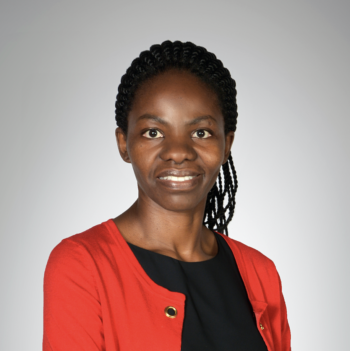
Esther Buregyeya is a Senior Lecturer and Head of Department for Disease Control and Environmental Health at Makerere University School of Public Health in Uganda. She is a member of the National One Health Platform and National Task Force on Antimicrobial Resistance (AMR). Her research interests include HIV, tuberculosis, AMR, emerging and re-emerging diseases and mHealth.

Irek Emmanuel is a passionate fellow in antimicrobial resistance and infection prevention. Hand hygiene among healthcare workers has been his focus in recent times. In addition, surveillance of carbapenem -resistant bugs has been intriguing to work with. Outbreak investigations of any sort interests him a lot. Presently, he is looking towards hospital epidemiology to crackdown on healthcare-associated infections.
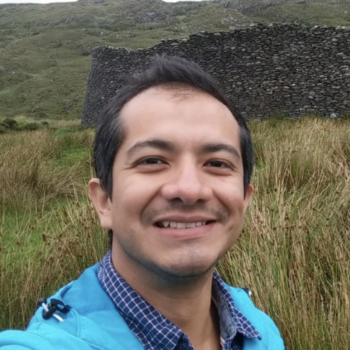
Carlos Montefusco is a Brazilian pharmacist working on the development of new ways to test anti-infectives, one of which includes the establishment of in vitro models that add infection and inflammation to mimic the lung of Cystic Fibrosis patients. His work is performed at the Helmholtz Institute of Pharmaceutical Research Saarland, Germany.
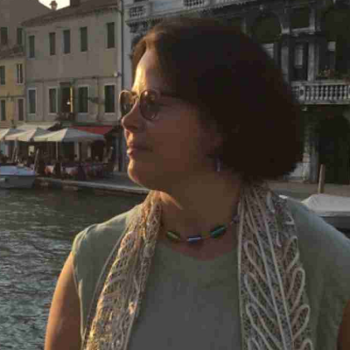
Arielle Blocker is Senior Microbiologist, Project and Team Leader in Antibacterials, Severe Bacterial Infections Cluster and Bacteriomics Platform at Evotec ID in Lyon, France. Arielle earned a BSc in Genetics (UCL) and a PhD in Cell Biology (EMBL, Heidelberg) and then gained postdoctoral training in Microbiology (Pasteur Institute, Paris). She then set-up a research laboratory focused on molecular studies of the function and structure of type III secretion systems, major virulence devices of Gram-negative bacterial pathogens at the Dunn School of Pathology, University of Oxford. In 2008, Arielle moved her laboratory and became a member of academic in the Faculty of Biomedical Sciences at the University of Bristol. She remained there until 2017 when she took an R & D project leader position in the Antimicrobial unit at Sanofi Aventis in Lyon. In 2018 her unit was transferred to Evotec AG as Evotec ID Lyon. Since entering industry her research is focused on the identification and development of novel molecules able to eradicate Gram-positive persister bacteria responsible for bone joint and prosthetic joint infections.

João Anes is a senior scientist in the area of microbiology. Over his career, João has focused on fighting AMR. His PhD main work was in the development of new strategies to fight multi-drug resistant bacteria by re-using old antimicrobials and has also patented new antimicrobial drugs developed with his collaborators. He has published several papers in the area of antimicrobial resistance and food safety. Later he moved into industry where he focused on AI predicted bioactive compounds working as a lead microbiologist in the production of novel antimicrobial and bioactive peptides through fermentation and investigating hydrolysate induced shifts in the human microbiota. Currently, João works as senior scientist for EXMceuticals, a cannabis-focused company in Portugal where he develops new cannabinoid formulations with antimicrobial potential for food and skin industry.

Ogbobi Samuel, a 29 years old pharmacist from Nigeria, is currently practicing as a medical representative in North central Nigeria. Ogbobi graduated from Ahmadu Bello University Zaria in 2014 and was licensed to practice in 2015. With over five years of practice, his major burden has been the ever increasing cases of antimicrobial resistance with almost no new agent being developed in a while.
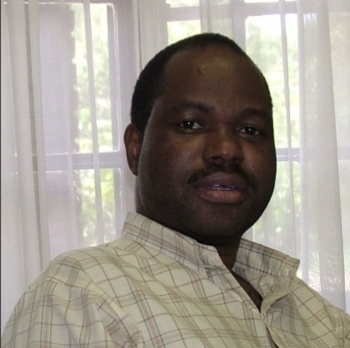
Kujinga Tapiwanashe is the Director of the Pan-African Treatment Access Movement in Zimbabwe. This organisation started working on AMR in 2015. They managed to mobilise stakeholders from the relevant Government ministries and departments, private sector, civil society and bilateral and multilateral partners. When the National AMR Core Group was formed, Kujinga became a member representing civil society, and thereafter he became the chairperson of the Education & Awareness Technical Working Group. His organisation is the secretariat for the national AMR program in Zimbabwe. He has been working with the national AMR structures on the situational analysis and the national action plan, as well as on implementing the identified priorities.

Luria Leslie Founou is a Microbiologist and Data Scientist with extensive research experience in infectious diseases and antimicrobial resistance within the One Health approach. She completed her Ph.D. Degree in Pharmaceutical Microbiology with a strong focus on epidemiology, antimicrobial resistance, molecular microbiology and genomics in 2017 at the University of KwaZulu-Natal, South Africa. She obtained a B.Sc. degree in Biomedical Sciences in 2011 and an M.Sc. degree in Clinical Biology in 2014. Her research interests focus on unraveling the drivers behind the emergence, spread and transmission dynamics of resistant bacteria at the animal, human and environmental interface (One Health) using genomics and state-of-the-art technologies. She is proficient in molecular microbiology, bioinformatics and statistical analysis packages, combined with intermediate knowledge of programming with Python.
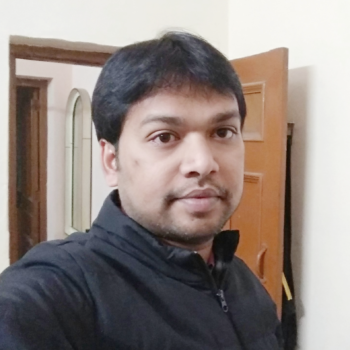
Nagarjuna Daram is working at the Indian Institute of Technology, Roorkee, India. He earned his doctoral degree on characterizing the E.coli causing nosocomial infections. As a post-doctoral fellow, he is exploring antibiotic resistance mechanisms in ESKAPE Pathogens and on elucidating the structural details of the Metallo β-lactamases. He works on the clinical isolates from the tertiary care hospitals by utilizing WGS, PCR for understanding the genome plasticity and antibiotic resistance. Along with research, he is keen in creating public awareness about the use of antibiotics. India has a prominent role and can be an important platform to understand AMR. It poses a serious threat to the patients undergoing treatment in ICUs which motivates him to work in this field. He writes small articles on AMR for the folks. He also discusses about AMR among his non-medical background friends during small group meetings to make them aware of the AMR. He takes every opportunity to spread a word of knowledge about AMR.
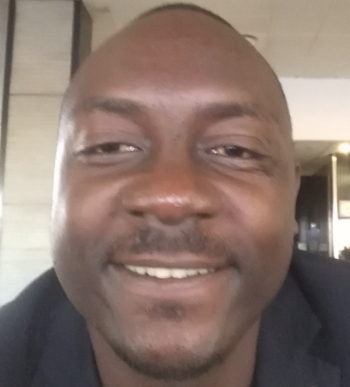
Raspail Carrel Founou is the Country Director of Eden Foundation and Director of the CEDBCAM Laboratory of the University of Dschang in Cameroon. Raspail is a Medical Microbiologist with diverse research interests. He completed his Ph.D. degree in Medical Microbiology with strong focus on antimicrobial resistance, medical microbiology and infectious diseases from the University of KwaZulu-Natal, South Africa. He currently works on several projects and the main focus is A One Health Triangulation of Antibiotic Resistance in Hospital and Community Settings: Evidence for Sustainable Political will and Commitment.
Raspail is an AMR-Expert related to Human- Animal- Environment. He has strong administrative skills and is experienced in Capacity building, laboratory management and management of projects. He has high computer literacy, with proficiency in data management of large metadata and research analysis using state-of art technology. He recently completes a python research certificate to be a data scientist. He is also a lecturer as well as supervisor of several students AMR fields at university of Dschang Cameroon.
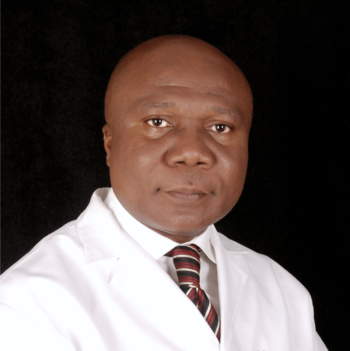
Jones Okoye is a practising veterinarian in the private sector and working at Ceasar & Jones in Nigeria. Jones understands the gravity of antimicrobial resistance as a healthcare provider. He has always insisted to tailor my practice based on antimicrobial sensitivity before issuing out a prescription of antibiotics, especially those of public health importance. He wants to join the global fight to curb the menace of antimicrobial resistance. Jones has a good diagnostic laboratory for practice and training of interns.

Violet Namiwanda is Pharmacist and Head of Operations at Happy Pills Healthcare in Uganda. Violet has been working to improve access to highly efficacious and affordable medicines in Uganda for over 6 years. She currently leads the Community Pharmacy team at Happy Pills Pharmacy in one of the central districts in Uganda. Her main objective is to emphasise the impact a Pharmacist can have on rational drug use in Uganda. In such a young healthcare system, the first point of care remains the community drugs shop and she envisaged that Pharmacists can influence the rational use of antibiotics and AMR early in the health system by providing 24/7 free consultation on antibiotics education, setting up specialist referral to limit self-medication and build confidence in the healthcare system and consulting prescribing physicians to revise prescriptions. She has set up a system to monitor patient frequency of medication and catch irrational drug use as well as being a model pharmacist for young training pharmacists.
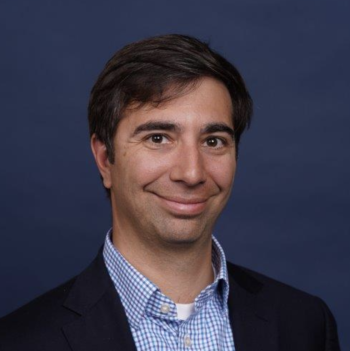
Bruce Altevogt is Vice President and Head External Medical Engagement within Pfizer Inc.’s Hospital Business Unit in the USA. In this role Bruce is responsible for establishing and managing the business unit’s scientific and medical stakeholder engagement strategy. In addition, the External Medical Team supports the industry leading AMR surveillance program, ATLAS. Prior to this role he was a Senior Director of Science Policy and Science Advocacy within Global Policy and International Public Affairs. In this role Bruce was responsible for managing policy issues in support of Pfizer’s research & development enterprise, vaccines and was lead for anti-microbial resistance policy. Bruce serves as the Board Chair of Healthcare Ready, a non-profit organization that helps to strengthen healthcare supply chains by addressing pressing issues before, during, and after disasters. He serves a member of the AMR Alliance Board, an organization that measures and drives the life-sciences industry progress to curb AMR.
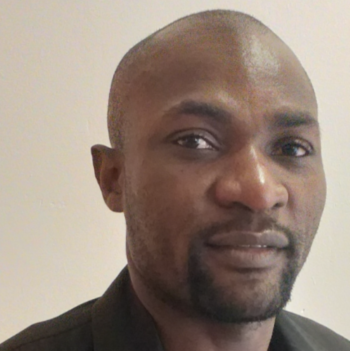
Abia Akabe Luther King is a Research Scientist at the University of Kwazulu-Natal (UKZN), South Africa. King is the Leader of the Molecular and Environmental Surveillance of Antibiotic Resistance at the Antimicrobial Research Unit (ARU), where he focuses on understanding the dynamics of antibiotic resistance in the environment and how this relates to human and animal health, using a One Health approach. King believes there is a need for greater awareness of the environmental aspect of AMR, especially in low- and middle-income countries, thus is involved in PhD and MSc students supervision in this regard. King is a Reviewer and Reference Group Member at the South African Water Research Commission and South African National Research Foundation. King is also an ASPEN New Voices Fellow (2020), and the lead editor of a book titled “Current Microbiological Research in Africa. Selected Applications for Sustainable Environmental Management” with topics on antibiotic resistance.
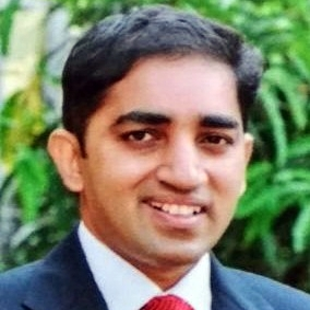
Robin Paul is Quality Manager at the State Laboratory, Ernakulam in Kerala, India. Robin is trained at the National Veterinary School, Nantes, France on Advanced Residue analysis techniques in foods as India’s nominated participant. He received additional training on implementation of control systems by Federal Agency for Food & Feed of Belgium. Robin holds a MSc in Veterinary Science in Food Hygiene & Public Health. His area of specialization is the detection of Antibiotic residues from foods of animal origin. He holds expertise in Laboratories, Public Health Surveillance, Quality Standard ISO 17025, Food Microbiology and AMR, Food production systems, International Food Safety regulations and Implementing Veterinary monitoring and surveillance systems. Robin is also a Scientific Advisor for the Accreditation of other apex Labs of AHD Dept. viz. ADDL, CDIO as per the international Standard ISO/IEC 17025. Currently he is in charge of the project “Monitoring of Antibiotic Residues in foods in Kerala” and “Antimicrobial Resistance (AMR) and in Food and Food Animals: An Integrated Surveillance Program for Kerala”. Robin is also the AMR Expert-Animal Health representing Kerala State on WHO/Govt of India for National Consultation on operationalization of action against AMR. He was involved in planning, conceptualization and drafting of the Kerala Antimicrobial Resistance Strategic Action Plan (KARSAP) which is the first sub national action plan in India.
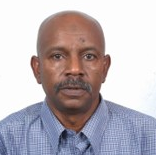
Adil Ismail is a Consultant International Affairs working at the National Public Health Laboratory, Federal Ministry of Health, Khartoum in Sudan. Adil is currently participating in teaching programs for postgraduate’s students (MSc, Microbiology) and supervising students working in the area of Antibiotics Resistance. He is also conducting seminars among the communities fighting AMR. Adil is looking for possibilities to expand the activities to strengthen the awareness among professionals, policy makers, decision makers and communities by using different tools. Adil is creating a forum to involve different sectors to strengthen the one health approach, collaboration and coordination. He is also involved in capacity building and enabling at the related Institutes and organizations. Finally Adil works on establishing partnerships at local and global level.
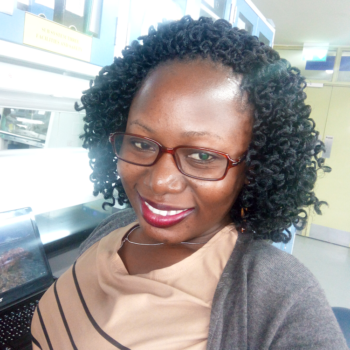
Ritah Namusoosa is currently working at the National Health Laboratory and Diagnostic services and to be specific in the National Microbiology Reference Laboratory in Uganda. She is the technical officer in charge of Antimicrobial Resistance Surveillance ensuring that all activities regarding AMR surveillance in the laboratory sentinel sites are being implemented as per the national protocols. Her activities are now centered around increasing the clinician-laboratory interface. She also supports the National Coordination Centre for AMR human health with data management. Ritah is a biochemist and pursuing a Masters degree in International Infectious Disease Management at Makerere University.

Matthew Diggle has been involved in AMR for the past 20 years, primarily this was within the Scottish Reference Laboratories in the UK, which were joined to acute care microbiology services. His primary focus in the late 90s and early 2000s was pneumococcal, meningococcal and haemophilus. This included both development of improved diagnostics and characterization tools and included the correlation between new typing schemes and resistance profiles. Having spent almost of 10 years in Glasgow he gained a consultant position at the Queens Medical Centre, Nottingham. There he focused on non-sterile site infections within the acute Clin. Microbiology service. This lead to an invitation to be on the international working group for diabetic foot infections and this has led to authorship of international guidelines in 2015 and more recently updated in 2019. Finally, in April of 2019 Matthew moved to a senior clinical position in Alberta, Canada working for the acute care (at the University of Alberta Hospital) and supporting the Provincial Microbiology Services (ProvLab). One of his goals, aside from chairing the acute care committee, is to look at ways to monitor and better understand the rapid development of Resistance within this group of infections, such as our rise in Gonococcal azithromycin resistance (currently at >50%).
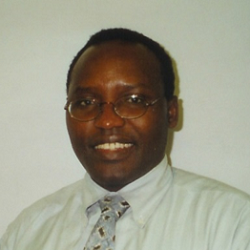
Nkuchia M’ikanatha is an epidemiologist with the Pennsylvania Department of Health in the USA. He is focused on AMR response with emphasis on One Health integrated surveillance and community based efforts to promote judicious use of antibiotics. Nkuchia collaborates with the National Antimicrobial Resistance Monitoring at the FDA and CDC. He also participates in the FDA GenomeTrakr and he is an adjunct scholar at the Center for Clinical Epidemiology at the Perelman School of Medicine, University of Pennsylvania. Nkuchia is an Associate Editor for Emerging Infectious Diseases, responsible for book and media reviews. He has edited two widely used textbooks published by Wiley-Blackwell in Oxford, United Kingdom: Infectious Disease Surveillance and Concepts and Methods in Infectious Disease Surveillance. Nkuchia would be delighted to engage like-minded colleagues and community members in ways to strengthen One Health surveillance for antimicrobial resistant pathogens of animal origin. He is also keen on exploring innovative approaches to promote antimicrobial stewardship in healthcare in addition to community settings including childcare facilities, nursing homes, primary schools and hospitals. An example of such innovations is the Be Antibiotics Aware” Children’s Art and Video Competition.
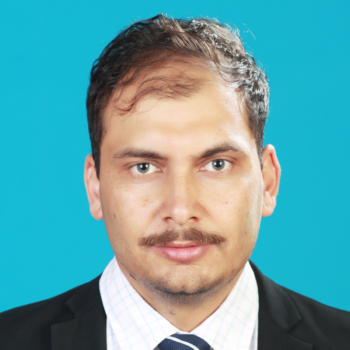
Ijaz Ahmad is working as a Teacher and Researcher at the University of Agriculture, Peshawar in Pakistan. Ijaz is exploring and adopting Pk/Pd models for the optimization of dosage regimens with the aim to minimize the resistance and drug residues of antimicrobial drugs. He wants to devote his intellect, creativity and contemplation in this field to serve mankind. Ijaz’ future goals include establishing a career in research and educating people about the use of antibacterials.
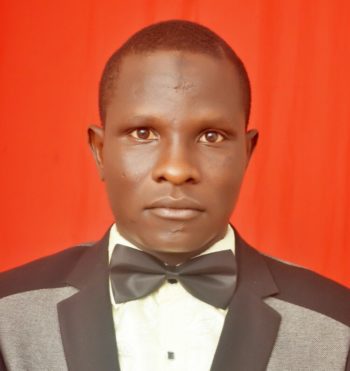
Najib Auwal Tsoho works as a lecturer and is involved in the coaching of students at the School of Hygiene in Kano, Nigeria. As such he is also involved in Antimicrobial resistance.
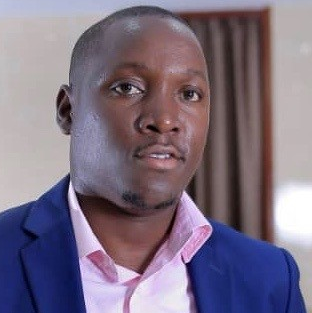
Francis Kalule is a graduate in Public Health and currently completing a MSc in molecular biology and biotechnology working on a thesis of benzimidazole resistance genes in haemonchus contortus in small ruminants in Uganda as a result of continuous and wrong use of benzimidazoles on farms. Francis is currently working with Zoetis ALPHA as a diagnostics manager for Uganda. One of the key aims of the initiative is to improve the veterinary diagnostic infrastructure in Uganda so as to reduce on wrong misuse of antibiotics in treating animals hence causing AMR. Francis is also involved in training of veterinarians on the proper use of labs, disease diagnosis to support good animal health management in the country.
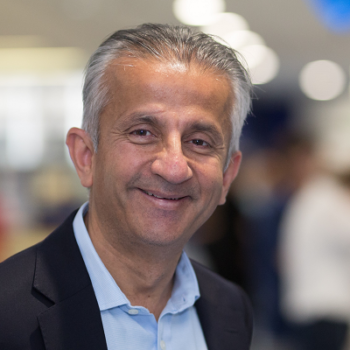
Dilip Nathwani is Emeritus Honorary Professor of Infection at the Univerisity of Dundee in the UK. Earlier Dilip led the Scottish Antimicrobial Prescribing Group (SAPG) and was elected President of the British Society for Antimicrobial Chemotherapy [BSAC]. His involvement and leadership in the field of antimicrobial stewardship, sepsis and MRSA/CID management has been recognised in Scotland, UK and internationally. In 2011 he was appointed by the European Society of Microbiology and Infectious Diseases as Chair of the European Study Group for Antibiotic Policies (ESGAP). In 2015 he created and led a tripartite collaboration between the University of Dundee, BSAC and FutureLearn to create the world’s first open access free at the point of access massive open on-line course [MOOC] in antimicrobial stewardship. This has now been through 4 foreign language translations and has been accessed by > 100,000 participants from 163 countries. This has been complimented in 2018 by the development of a unique freely accessible global interactive global e-book on stewardship for all healthcare professionals. Since its launch in 3/18 it has had > 30,000 formal downloads and was recognised by WHO as a key global educational solution in AMR. Dilip’s main area of focus remains AMR and antimicrobial stewardship/education and implementation where he brings insight into clinical and economic value of new care pathways for infection management, how new antimicrobials as well new technologies [e.g. diagnostics] will/could work within a complex global care system.
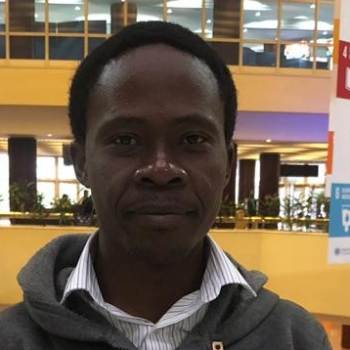
Olorunsola Niyi Bankole is a veterinarian and virologist working as a Field Diagnostic Manager at Zoetis ALPHA initiative in Nigeria. Olorunsola is involved in training and education of all stakeholders in livestock industry, development and strengthening of livestock diagnostic networks as well as in epidemiological studies of livestock diseases. Currently, he encourages farmers to embrace good bio security measures, proper management and the use of laboratory to determine the proper vaccination timing and correct antibiotics when need be. Olorunsola also encourage the use of laboratory diagnosis. This helps in adjusting some management of livestock instead of abuse of antibiotics. When needed, appropriate options and dosages are also given based on laboratory test outcomes. In the nearest future, he will be considering the aspects of quality control especially in poultry feed and feeding raw materials. As mycotoxins can make flocks susceptible to all sorts of conditions hence increase the usage of antibiotics unnecessarily.

Gilles Courtemanche is the Antimicrobials Program Head at Bioaster in France. Gilles is involved in editing public-private partnerships to curve AMR and to combat (re)-emerging infectious diseases. Bioaster, the technology research institute, dedicated to infectious diseases and microbiology, is part of the French government’s response to the AMR challenge. The mission of the Institute is to develop innovative technologies that allow our industrial partners to discover and develop faster, better therapeutic solutions, at a lower cost. For this, Bioaster operates in three complementary domains of application, Drug, Vaccine and Diagnostics but also in more alternative approaches such as microbiota, phage-therapy, host-oriented treatments, botanical drugs or traditional medicines. This multidisciplinary approach allows Bioaster to identify synergies, complementarities and opportunities to more effectively address unmet medical needs by means of truly innovative solutions developed during collaborative projects sharing scientific, technical and financial risks.
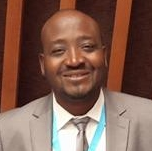
Zoumana Isaac Traore is Antimicrobial Resistance Officer at the World Health Organization (WHO) in Mauretania. Zoumane assists the Mauritanian Government in developing and implementing a National Action Plan to combat AMR. In particular he is involved in raising awarness among health practitioners and the general public while advocating for policy change/development for the containment of AMR.
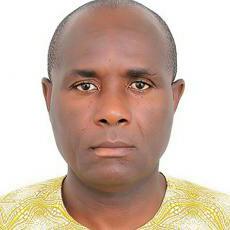
Abraham Allotey is a agriculturist, wood technologist and apiaculturist in beekeeping technology development, working for Allotey Honey Bee Farms in Ghana. Abraham focuses on the development of technology for harvesting propolis to manage AMR. He is also involved in the Forestry Commission Ghana. Abraham is involved in promoting propolis harvesting, processing and utilization of honey for AMR management.

Uwe Albrecht is by origin a medical doctor and currently is the CEO of Mediconomics in Germany. Following education in the Faculty of Medicine of Marburg University and four year experience in clinical and academic medicine Uwe worked for Behringwerke and later for Glaxo Group Research (both UK an Germany) before founding Mediconomics. Uwe has published widely in the area of pharmaceutical medicine and related subjects. He is Chartered Scientist, Member of the WMA, Royal College of Physicians, Faculty of Pharmaceutical Medicine and Fellow of the Institute for Biomedical Science. Uwe is a leading driver in clinical research of phytomedicinal products with antibacterial efficacy and the development of associated medicinal products on peptide basis.
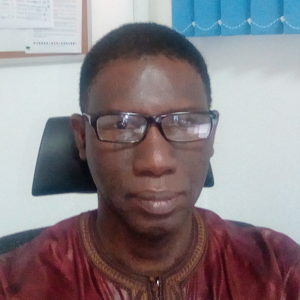
Ibrahima Lo is the National One Health/AMR Expert at the Emergency Center for Transboundary Animal Diseases of Food and Agriculture Organization (FAO-ECTAD) in Senegal. Inbrahima contributes to the preparation of National strategies and One Health programme for the management of emerging and re-emerging, zoonotic or non-zoonotic diseases with high impact in Global Health security and food safety. He also establishes contacts in order to improve collaboration between One Health actors at national and regional level, identify and share good practices and tools to support timely decision-making, contribute to strengthening the institutional leadership and technical capacities of the One Health Platform and to support the National One Health platform to better identify and understand the global, regional and national issues of the One health approach.
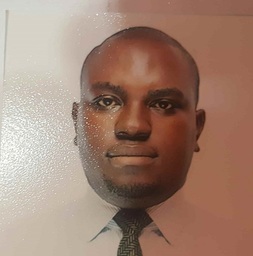
Adeola Ayeni is a Clinical Pharmacist in the Department of Pharmaceutical Services University College Hospital (UCH), Ibadan, Oyo State, Nigeria. He is a member of the Antimicrobial Stewardship Committee of this Institution. Adeola is very passionate about infection control and antimicrobial resistance. He is committed to eliminating antimicrobial resistance because of its global impact. Ayeni’s job description includes providing Pharmaceutical Care to ambulatory patients and in-patients (ICU, HDU inclusive). As a medicine use expert, he is charged with the responsibility of providing information on medicine use and monitoring of patients` therapeutic outcome. Furthermore, he is a strong advocate of antimicrobial resistance in every professional environment he finds himself. Adeola celebrated the 2019 World Antibiotics week in collaboration with other members of the healthcare team in the institution where he works by providing educational support to the members of the public and the hospital community. He desires to further combat the spread of AMR.

Luisa Fernanda Toro-Alzate is a medical doctor with knowledge in basic and clinical sciences, research training and emergency clinic experience. Luisa is of Colombian origin and currently coursing her master studies in Public Health at the Royal Tropical Institute KIT in The Netherlands. Her intended contribution to curbing Antimicrobial resistance will be the description and analysis of the public policies and their implementation in low and middle-income countries. Places where the indiscriminate use of antibiotics have increased and contributed to the spread of AMR. Also, she wants to add improving these policies to diminish the AMR burden.
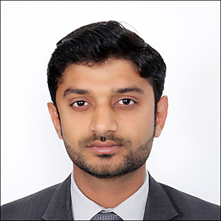
Muhammad Farooq Tahir is a Veterinary Microbiologist and graduate of Field Epidemiology and Laboratory Training Program (FELTP), Pakistan. The work of Muhammed has been focused on zoonosis including assessment of occupational health hazards for at risk communities against zoonotic diseases and use of mobile-based applications of real time disease surveillance. Muhammed is a Technical Advisor at Health Security Partners (HSP), USA. He is working with Fleming Fund Country Grant on AMR for Pakistan. His core responsibilities include assessment of laboratory capacity on AMR, development of capacity strengthening plans in consultation with in-country stakeholders and to develop and implement the AMR surveillance plan. Before that Muhammed was the Technical Advisor on One Health for Pakistan at Health Security Partners (HSP), USA. As such he coordinated between human and animal health sectors at federal and provincial level for one-health activities, development of control and / or elimination programs for priority zoonotic diseases at national level. He also assisted in the development of key policy documents e.g. National One Health Strategic Framework.
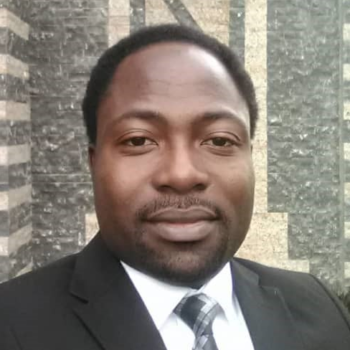
David Akanbi is the founder of Caresite Pharmacy and Healthmart in Jericho, Nigeria. The pharmacy commenced Operations on September 1, 2016. David gets engaged with patient counselling with specialized pharmaceutical care services such as extemporaneous preparations. As the CEO and Most Senior Responsible pharmacist, he trains other pharmacists on adherence to the tenets of Antimicrobial Stewardship, and implements up-to-date community pharmacy practices. The site serves as an annex pharmacy to the largest teaching hospital in West Africa, called University Teaching Hospital, Ibadan (with more than 1,000 beds), where they source and stock rare and orphan medications, especially special antibiotics that may not be available at the hospital due to one reason or the other. Due to the fact that the Pharmacy has some broad spectrum antibiotics and ICU medications, David participated in 2018 and 2019 Antibiotics Awareness Week programs at the Teaching Hospital. They hope to go into a well established public-private partnership with the Laboratory Department, Clinical/Medical Microbiology, ICU and Pharmacy Departments of the teaching hospital (UCH) to provide infrastructural support, educational programs to the residents, PPE, and more affordable broad spectrum antibiotics respectively in order to lessen the burden of Antimicrobial Resistance in Nigeria.
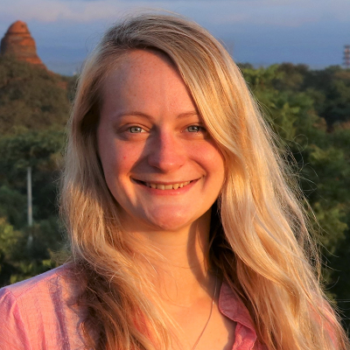
Naomi Bull is a veterinary researcher working across inter-disciplinary areas related to global health. She works at the London School of Hygiene and Tropical Medicine in the UK. Naomi has a multi-disciplinary background in veterinary sciences, infectious disease immunology, vaccine development and public health and her research covers both the social and natural sciences. She is currently working as a Research Fellow, where her research interests in AMR take a One Health perspective, focused on the intersection between human and animal health and the environment. Naomi has worked in Kenya and India studying AMR in subsistence farming communities and has also been involved in creative public engagement activities around AMR with schoolchildren in India, Kenya and the UK. She is particularly interested in raising public awareness of AMR and promoting positive antimicrobial stewardship at the community level through her ongoing work.
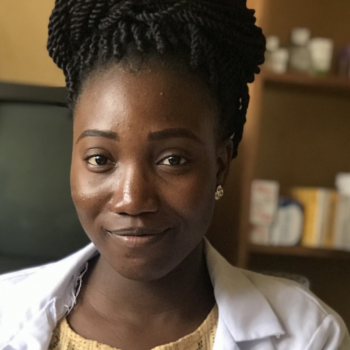
Adeola Bamisaiye is currently a pharmacist intern at Obafemi Awolowo University Teaching Hospital, Ile-ife, Nigeria. She is passionate about Global health, with specific interest in antimicrobial resistance. She was a member of the only Nigerian team, selected as winners for the Innovate4AMR competition in 2018, hosted by the World Health Organization (WHO), ReAct-Action on Antibiotics resistance, International Federation of Medical Students Association (IFMSA), Johns Hopkins IDEA initiative and South centre. Her team also championed a #100daysAwarenessOnAMR on social media. She is a trained science communicator who seeks to utilise her knowledge and skills in raising awareness about antimicrobial resistance. During the World Antibiotics Awareness Week (WAAW 2019), she spearheaded a team that raised awareness on AMR at secondary schools. She has also worked as a student researcher to generate AMR surveillance data from isolates obtained from Nigeria’s National Reference Laboratory.
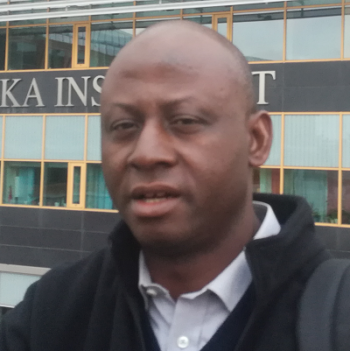
Joseph Fadare is a Consultant Physician/Clinical Pharmacologist and Associate Professor working at the Ekiti State University Teaching Hospital/ Ekiti State University College of Medicine, Ado-Ekiti, Nigeria. Joseph teaches Clinical Pharmacology and Therapeutics to undergraduate medical students. He take courses on Antimicrobial Chemotherapy and Rational Use of Medicines. He also works as a consultant physician managing patients with infectious and non-communicable diseases. He also trains postgraduate resident doctors on rational prescribing of medicines including antimicrobials. Joseph has been conducting research on the availability and functionality of Drugs and Therapeutic Committees and Antimicrobial Stewardship Programs in Nigerian hospitals. Presently he is working on commencing an antimicrobial point prevalent study study across several sites in Nigeria.
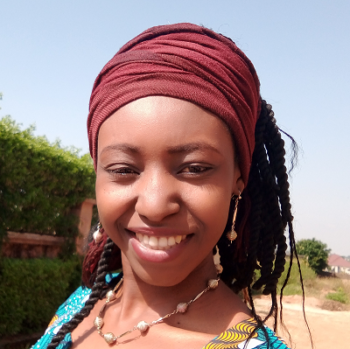
Rhoda Ilenwabor is a Pharmacist with a passion for pharmacotherapeutics and drug design. She presently works at CHAN Medi-Pharm Jos, Nigeria as the Superintendent Pharmacist and a Monitoring Evaluation, Research and Learning officer. Her work involves monitoring and evaluating company activities and projects such as the procurement, sales and marketing of pharmaceuticals, supply chain of health products. Rhoda also works in the minilab to ensure that drug products dispatched to consumers are of quality standard. She also works with the research team. About Antimicrobial Resistance, she has done a poster presentation on Establishing the Weakest Link in the Fight against Antimicrobial Resistance. This was presented at the July 2019 ReAct conference on Antimicrobial Resistance in Nairobi, Kenya. In the near future Rhoda wants to work with environmentalists and farmers to pursue an end to the AMR scourge.
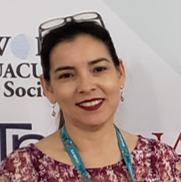
María Elena Báez Flores works at the Universidad Autónoma de Sinaloa in Mexico. Currently she is the Coordinator of the Master Degree and the Doctorate Program from the Facultad de Ciencias Químico Biológicas. Her research lines are Molecular Microbiology and Genomics of Antimicrobial Resistance. She teaches subjects of the Microbiology area (General Microbiology, Bacteriology, Micology, and Virology) to pregrade students. At postgraduate level, she teaches Molecular Microbiology and Introduction to Bioinformatics. Maria has been conducting research on antimicrobial resistance determinants, mainly in E. coli and Staphylococcus spp. Also, her research group is looking for alternatives to antibiotics use. They investigate the effect of local and regional plant extracts on resistance and multiresistance bacterial strains obtained from patients or environmental studies performed in the lab.

Maduekwe Nkechi Perpetua is a resident doctor in the department of clinical microbiology at Nnamdi Azikiwe University Teaching Hospital Nnewi in Nigeria. Her duties include seeing patients, attending to consults, running microbiology tests like urine m/c/s, blood culture etc. Maduekwe is a member of the infection prevention and control unit in her hospital. She has just completed an online course on the role of diagnostics in combatting antimicrobial resistance at the London school of tropical medicine and hygiene. In her role as an ambassador she will sensitize via social media about antimicrobial resistance. According Maduekwe the truth is that in Nigeria, the average citizen has no idea what AMR is. Maduekwe has been speaking out on her WhatsApp already. Even though she is a a doctor, it was after she completed that online course that I came to fully appreciate AMR and what it means to the future generation
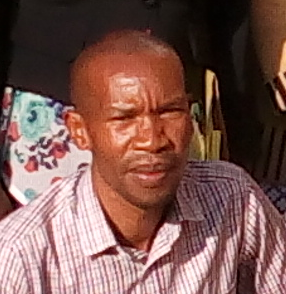
Humphrey Aberi works as a county laboratory coordinator in remote Kenya in a county known as Kakamega. He is in charge of 155 facilities where he coordinates HIV and TB services. Humphrey supports service providers to develop and implement programs to evaluate the quality and effectiveness of services and to implement improvements. In addition he develops protocols for ensuring compliance with practice guidelines and laboratory regulations. Humphrey also coordinates national and regional technical assistance including laboratory training, laboratory accreditation, laboratory audits and assessments. He implements new diagnostic techniques and is involved in training, coaching and mentor-ship of staffs on laboratory diagnostic methods.
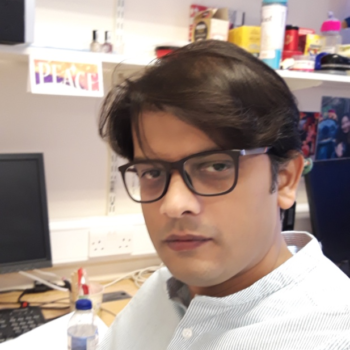
Mashkoor Mohsin Gilani is working as Assistant Professor at Institute of Microbiology, University of Agriculture, Faisalabad, Pakistan. He leads a very vibrant research group on antimicrobial resistance (AMR).The focus of his research is the molecular epidemiology of multidrug resistant Gram negative bacteria at human-animal interface. He is currently addressing the issue of AMR and antimicrobial use, as this is a question of high importance since Pakistan has drafted its National Action Plan on AMR. Mashkoor is investigating how evolution and spread of plasmid-mediated extended spectrum ß-lactamases (ESBLs), carbapenemase and mobile colistin resistance (mcr-1) in bacteria occurs in response to the extensive antimicrobial use (AMU) in human and livestock. He has reported the first article on AMU in food animals in Pakistan in Global Health Action. Mashkoor has been selected for FAO/WHO Panel of Expert on Foodborne Antimicrobial Resistance (2018-2022). In addition, he is member of the Surveillance and Epidemiology of Drug-resistant Infections Consortium (SEDRIC), Wellcome Trust, UK

Eva Garmendia is a Project Coordinator at the Uppsala Antibiotic Center, Uppsala University in Sweden. After finishing her PhD focused on understanding the evolution of the bacterial chromosome using experimental evolution and molecular biology, she joined the Uppsala Antibiotic Center to involve herself in work related to the global problem of antibiotic resistance. There, she works coordinating and arranging all the activities and educational programs, performing an array of science communication activities around AMR, and conducting networking and communications within the center and with external stakeholders in the area.
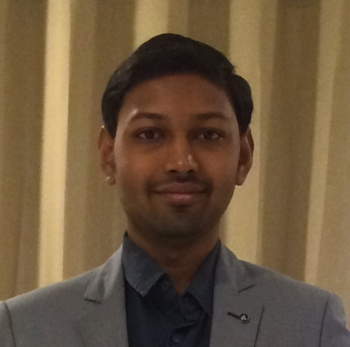
Prathamesh Sawant is a Clinical Pharmacist Practitioner and Co-Founder of AVEKSHA: Home Based Primary and Palliative Care; PCMH at the Restore Health Clinic in Bangalore, Karnataka, India. AVEKSHA was started as a Physician-Pharmacist Co-led model to deliver optimal medical needs to patients at their homes. AVEKSHA takes care of most of the patients with infectious causes at their home along with catering to other symptoms and manages complex infections. Prathamesh has done his dissertation on “Improving Rational Use of antimicrobials at a tertiary care hospital” to help build and update the antibiogram at the hospital and understand the usage and disease burden in the institution of practice. He is also working with his team (PCMH-MSCH) to collaboratively build an AMR protocol using the urban data from his dissertation and rural data from one of his colleagues dissertation to design a new device that will help catch infection at the early part and start the patient with best treatment plan available.
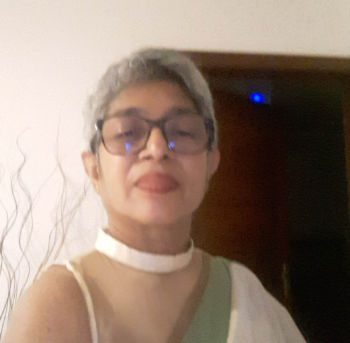
Rohini Wadanamby is the Head of the clinical microbiology diagnostics at the Lanka hospital (LHC) and Lanka Hospital diagnostics (LHD) Department of microbiology in Sri Lanka. For LHD she treats infections and infectious disease patients who were referred by other consultants or directly admitted under her. Rohini participates in a multitude of national programs related to AMR combatting through college of microbiologists, post graduate institute of medicine and Ministry of Health of Sri Lanka. She is involved in diagnostics (their lab is accredited with College of American Pathologists) and provides annual AMR reports based on susceptibility and resistance patterns to all permanent and visiting consultants. She carried out antibiotic stewardship program at the National Institute of infectious Diseases up to 2017. Also she is involved in teach post graduate students on AMR combatting programs and practices and writing to the papers and magazines (5 of them currently) on what public should know to prevent AMR, did lectures and programs with college of microbiologists, was involved in microbiomes associated programs and did several lectures on human, animal and environmental microbiome in Sri Lanka Medical Association forums. Also she is a mentor and supervisor for post graduate and under graduate students who do some work on AMR combating.
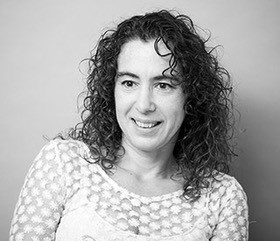
Tracy Nevitt is a Senior Scientist at Neem Biotech in the UK. Tracy has worked in the fields of infectious and rare diseases since she completed her PhD in Biochemistry. During her post-doc at Duke University, North Carolina, USA, she specialised in fungal and bacterial pathogenesis. She was a Duke Scholar in Infectious Diseases and trained at the Woods Hole Marine Biology Labs in Molecular Mycology. During this time, Tracy also led a discovery project on Menkes disease, an ultra-rare disease of systemic copper deficiency in children. Menkes disease became her lab’s main research focus as Assistant Professor at the University of Missouri, Columbia. Upon her transition into industry in 2013, Tracy has developed and led several translational projects infectious, probiotics and rare diseases, for biotech companies in the USA and Wales. Tracy currently leads the EB project at Neem Biotech and is a senior scientist working towards curbing AMR in Neem Biotech’s discovery and development pipelines for novel antibiotics and antimicrobials. Tracy is passionate about seeking scientific knowledge from the literature and in sharing all relevant information via social media to colleagues and AMR groups of interest.
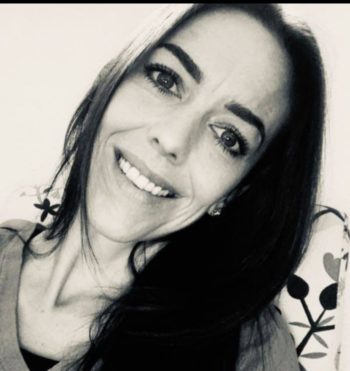
Cristina Flemming is a Brazilian graphic designer that works with marketing in animal nutrition for more than ten years in Brazil and now in Germany. Cristina is a digital media specialist at EW Nutrition, a company that is a feed manufacturer. The products are directed for animals consumption as alternatives to antibiotics as growth promoters, which is also part of the Mission and Vision of the company. It is part of her work to raise awareness on AMR. This is a threat of great importance. When she is talking about this with people that are not working with markets related to human and animal health, she finds it scary how big the lack of information is. She now shares a lot of information on AMR at LinkedIn and between the employees. She is also preparing the Facebook page for the future to increase the awareness as well.
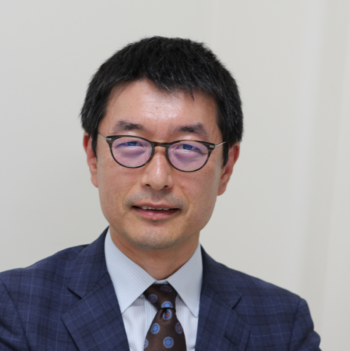
Yoshiaki Gu is chief of the Education and Information Division of the AMR Clinical Reference Center (AMRCRC), National Center for Global Health and Medicine Hospital in Tokyo, Japan. AMRCRC was established in 2017 as a commissioned project of Ministry of Health, Labour and Welfare of Japan. As an MD and MPH Yoshi has been with the AMRCRC to enhance knowledge and awareness on AMR among medical personnel and general public in Japan. As a leader of awareness raising campaign, he manages promotion activities of AMRCRC including website, public events, media approach, seminars for medical personnel, media strategy and so on. Some activities are introduced in AMR CONTROL 2019-20.
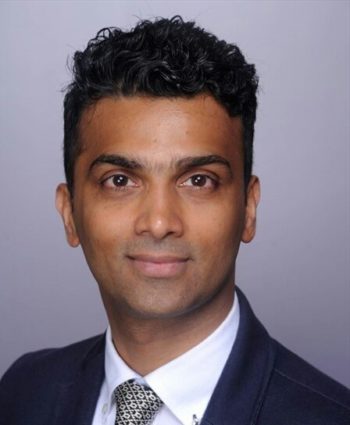
Dhanuraj Shetty recently was at CARB-X as the Accelerator Lead in Boston, USA. He supported the CARB-X funded companies via the Accelerator network for their business and scientific needs and was also instrumental in creating an operational framework for the Global Accelerator network. Before joining CARB-X, Raj was the Senior Director of Strategic Alliances and Partnership at The New York Stem Cell Foundation Research Institute. Raj also worked at the Juvenile Diabetes Research Foundation (JDRF) in a range of business development roles and was responsible for industry partnerships and alliances. He has over twelve years of industry experience, that included his time at KCI (now Allergan) and ten years at Johnson and Johnson where he lead research programs in the field of Regenerative Medicine. Raj has issued seven US Patents. His original training and work experience was in engineering. As an Ambassador Raj would like to get involved in educating the people of his home land India on AMR.

Andrew Kemp is a specialist in disinfection and decontamination and Head of Scientific Advisory Board of the British Institute of Cleaning Science in the UK. Andrew is heavily involved in disinfectant resistance, and will continue to research and promote best practice in this. In addition Andrew is a Principal Scientific Advisor to several Life Sciences companies as well as Infection Control Officer for Wimpole Aesthetic Clinic London and Zenith clinics Nottingham.
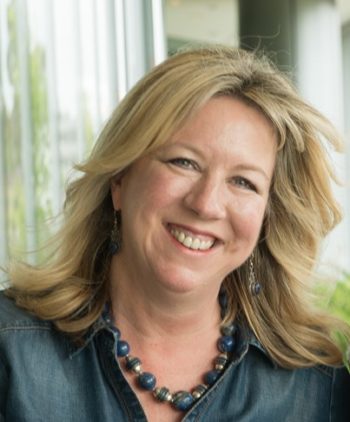
Steffanie Strathdee is an infectious disease epidemiologist, Associate Dean of Global Health Sciences and Harold Simon Professor of Medicine at the University of California San Diego in the USA. Steffanie codirects the Center for Innovative Phage Applications and Therapeutics. She is married to Thomas L. Patterson, Professor of Psychiatry at UC San Diego. Steffanie was recently credited with saving her husband’s life from a deadly superbug infection using bacteriophages. The two co-authored a book on their story called The Perfect Predator: A Scientist’s Race to Save Her Husband from a Deadly Superbug. For her efforts to revitalize phage therapy in the West, she was named one of TIME magazine’s Most Influential People in Health Care in 2018.

Madhavi Annamanedi is a Department of Biotechnology-Research Associate at the National Institute of Animal Biotechnology in Hyderabad, India. During her doctoral studies she worked on antibiotic profiles and epidemiology of drug resistant ESKAPE pathogens from hospitals. Madhavi has been involved in developing and analyzing alternate antibacterial therapy to reduce antibiotic use in treating drug resistant bacterial infections. After joining NIAB, she worked on epidemiology of bovine mastitis associated Staphylococcus aureus which is known for its drug resistance adaptations. At present she is working on antibiotic resistance during biofilm formation and treatment options for effective use of existing antibiotics. Madhavi started her commitment to combat AMR personally by suggesting my family members, friend and students around not to use antibiotics until unless they are necessary. She would like to focus more in educating poor people in villages of her country how to use antibiotics properly (When to use, Duration and Dose etc).

Niv Bachnoff is the co-founder and CSO at Omnix Medical in Jerusalem, Israel. Omnix Medical is a biotechnology-company developing the next-generation antibiotics against drug resistant bacteria. The Omnix platform technology offers a pipeline of antimicrobial peptides at various stages of development. Its lead peptide, OMN6, has been granted QIDP Designation by the FDA and is being developed as treatment for life-threatening resistant infections. Omnix is dedicated to introduce an innovative family of antimicrobial agents, employing a new MoA to help in the fight against resistant bacteria. Once approved as a treatment, OMN6 has the potential to offer a much anticipated treatment to people around the world suffering from resistant bacteria.
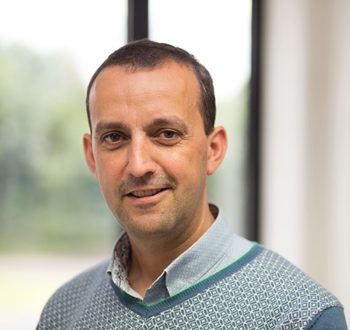
Jeroen Dewulf graduated as a veterinarian and currently works as full professor in Veterinary Epidemiology at the faculty of Veterinary Medicine of Ghent University in Belgium. His main research interests are related to antimicrobial use and resistance in animals as well as the prevention of epidemic and endemic diseases with a focus on the application of disease prevention and biosecurity measures. Jeroen is the main developer of the biocheck.ugent biosecurity scoring system which is used worldwide as a tool for disease prevention in animal production. He is also responsible for the annual Belgian report on antimicrobial consumption in animals (BelVetSac) and chair of the JPI-AMR network on quantification of antimicrobial consumption in animals at herd level. In addition Jeroen is the founder and chair of the centre of expertise on antimicrobial use and resistance in animals (AMCRA) in Belgium. He has recently written the book “8 myths on antimicrobial resistance disproved, practical guide for reducing antibiotic use in animal husbandry”.
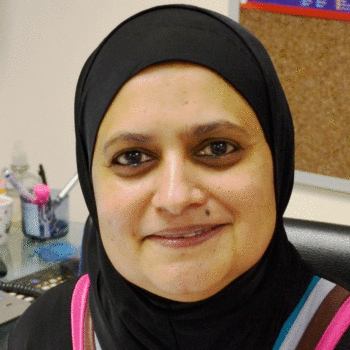
Sabiha Essack is Professor in Pharmaceutical Sciences and holds the South African Research Chair in Antibiotic Resistance & One Health at the College of Health Sciences, University of KwaZulu-Natal, Durban in South Africa. Sabiha is the Director of the Antimicrobial Research Unit (ARU) and General Secretary of the Academy of Science of South Africa (MASSAf). The ARU adopted the One Health approach, investigating antibiotic resistance in human, (food) animal and environmental health in keeping with the UN Political Declaration on Antimicrobial Resistance (AMR) and the associated Global Action Plan on AMR developed by the tripartite alliance of the World Health Organization (WHO), the Food and Agriculture Organization of the United Nations (FAO) and the World Organization for Animal Health (OiE). The ARU is committed to human capital development, creating a critical mass of PhD credentialed researchers and postdoctoral fellows in Africa with research knowledge and skills to generate evidence to optimally manage and contain antibiotic resistance in the One Health approach.
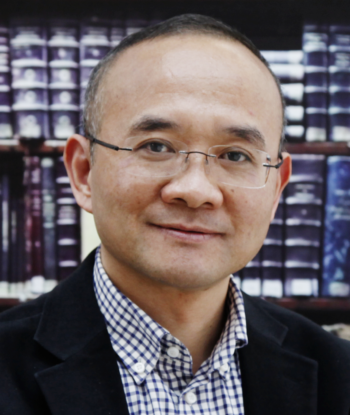
Yonghong Xiao is Professor and tutor for doctoral graduate, PI, Vice-director, State Key Laboratory of Diagnosis & Treatment of Infectious Diseases, 1st Affiliated Hospital, School of Medicine, Zhejiang University in China. Yonghong’s major interests include infectious diseases, basic and clinical researches in antimicrobial agents, bacterial resistant surveillance and mechanisms, clinical pharmacology and rational use of antibiotics. Yonghong is the founder & leader of MOH national antibacterial resistant investigation net from 2005 on, which have more than 1300 member hospitals. He is also a member of the National Committee for Drug Rational Use of China. He drafted the National Action Plan to Combat AMR of China. He conducted many international collaborative projects in AMR surveillance and control, which included Sweden, Great Britain, The Netherlands, EU and WPR, etc. Up to now, professor Xiao completed more than 30 national and international funded studies and over 50 clinical trials of new antimicrobial agents.

Amritanjali Kiran is working as a project associate at the Centre for Cellular and Molecular Platforms (C-CAMP) in Bangalore, India. Amritanjali is involved in the Antimicrobial Resistance Project. Her role includes outreach and spreading awareness about Antimicrobial Resistance. She is also involved in the outreach for CARB-X funding rounds. Amritanjali organizes workshops and delivers webinars and roadshows to spread awareness about Antimicrobial Resistance and funding opportunities available for AMR innovators and researchers. She is very much interested in spreading awareness about the AMR in Low and Middle Income countries by organizing workshops and webinars and by sharing new research articles/news/information etc among personal and professional networks. Also she would like to provide outreach about AMR opportunities available for students, innovators and researchers.
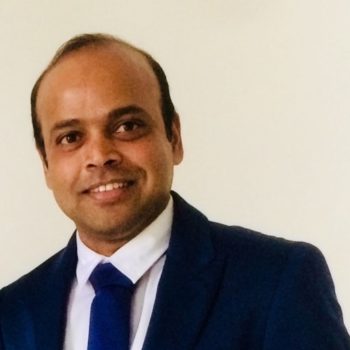
Satish Kumar is a Director Preclinical Research at PreviPharma Consulting GmbH, Mannheim, Germany. His major task is ‘’know how’’ for the various research activities. Satish is involved from idea generation to development of preclinical data with strong team of scientists for unmet medical needs. He is also responsible for the ‘’Medical Innovation Platform (MIP)‘’ to bridge the gap between Industry and Academia. PreviPharma works on various aspects of unmet medical needs and addressing AMR is one of core areas. Satish’ contribution towards curbing AMR is through research activities and by involving in various social aspects such delivering seminars on importance of use and misuse of antibiotics (under education program) and awareness programs.
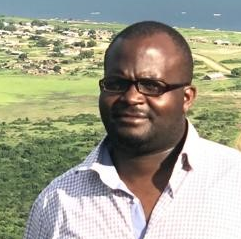
Jovan Baryamujura is a Public health Specialist in Uganda. His major interests are on how the ecological dynamics can influence AMR in humans and animals. Jovan is currently working with a project called Drivers of Resistance in Uganda and Malawi (DRUM) with focal interest how human behaviour and antibacterial usage in the home, around animals and in the wider environment in urban and rural areas of Uganda and Malawi contributes to the spread of antibiotic resistance in bacteria. They plan to investigate which aspects of behaviour are most important in spreading antibiotic resistance by surveying human behaviour in relation to antibiotics, water, sanitation and hygiene and by investigating bacterial behaviour in response to these stimuli. The project aims to use cutting edge mathematical techniques to “model” which behaviours are most important and then use this information to work with policy experts in Uganda and Malawi to design potential interventions to prevent them from spreading further. Jovan also supports the One Health program that is ran annually by the London School of Tropical Medicine and Hygiene through its East African Diploma in Hygiene and Tropical medicine.
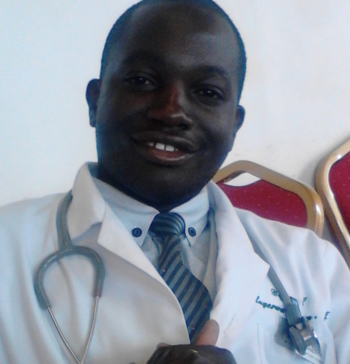
Mugerwa Ibrahimm is the AMR Program Coordinator for the National efforts to build and develop the AMR-One Health Program under the ministry of Health of Uganda. He is a fellow of the Fleming Fund AMR Capacity building program in the Human Health. Mugerwa and his team are working on piloting and developing a One Health AMR Surveillance program the first of its kind in the LMIC. Mugerwas coordination work is executed under the AMR- National Coordination Centre- NCC for human Health. Mugerwa is nominated to chair the GHSA-AMR Action Package Roundtable platform for 2019/2020 year round.
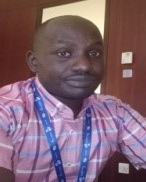
Joseph Zziwa is a Pharmacist at the Uganda Heart Institute (UHI), a parastatal leading provider of cardiovascular healthcare services in Uganda. UHI is charged with coordinating the prevention and treatment of cardiovascular disease. He coordinates the supply of medicines from the National Medical Stores and private suppliers, participates in research and gives advice to patients regarding the proper use and storage of medicines. He’s a senior member on the Medicines and Therapeutic committee which ensures that all antimicrobial agents available are appropriate for patients with heart diseases. He is part of the team responsible for development of restricted antimicrobial-use procedures and therapeutic guidelines. In addition, he reviews prescribed antimicrobials for their appropriateness as well as disseminates AMR information to patients and health care providers. Joseph is actively involved in infection control and prevention programs which aim at limiting use of antimicrobials.

Mauricio Agudelo is the founder of Bialtec SAS in Colombia (SA). Mauricio is in charge of the strategic vision of the business and in directing the research on the reduction of antibiotics in animal nutrition of the research groups that work with Bialtec. Bialtec is designing a novel AI platform to predict changes in the animal gut microbiota and design the additives to remodel the microbiome in a healthy condition. Mauricio is a Chemical Engineer, University of Antioquia in Colombia and a serial entrepreneur. His main personal and professional goal is to reduce the use of antibiotics as a growth promoter in animal nutrition through natural feed additives such as essential oil, probiotics, phytogenics, prebiotics, and others microbiome modifiers to avoid side effects and keep supporting the greener production of animal protein (meat, milk, and eggs).
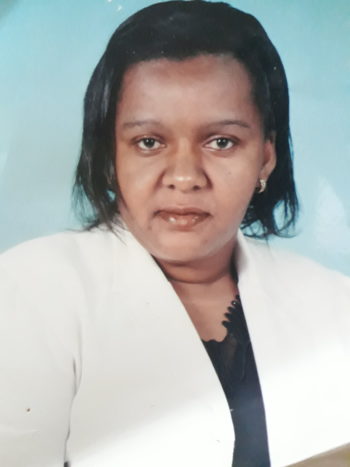
Beatrice King’ori is a laboratory epidemiologist working as a lab manager at Karatina Sub-County Hospital, Nyeri County, Kenya. Beatrice is a member of the Hospital management team, the County Antimicrobial Stewardship Interagency Committee (CASIC) and the Hospital IPC committee. She is secretary to the Hospital Quality Improvement Team (QIT) and a member of the hospital Medicines and Therapeutic Committee. Beatrice is assisting the County with outbreak investigations or any other assigned epidemiological work. She hopes to increase awareness about AMR in her circles and forums. Also she will pass updated information to my colleagues as regards AMR during IPC and QI trainings/sensitization forums and in social media too. Most importantly she wants to network with a team that is passionate and has expertise in AMS/R.

Srinivasan VK is the co-founder and director of ZeiniX Life Sciences in India. Srinivasan has been in the forefront of creating a blue-ocean in the field of molecular diagnostics for critical infections. Having dealt with antibiotic stewardship and the rising menace of AMR, he is very keen to contribute to the cause of creating awareness and to play a role in controlling reducing the global threat of AMR. He believes this man-made disaster can be managed thru evidence based diagnostics, educating clinicians and enabling the decision makers to institute antibiotics stewardship more meaningfully. Srinivasan is keen to associate with AMR Insights to further this challenging endeavor as an ambassador in India.

Lena Hannona is a clinical pharmacist at Cedars Sinai Medical Center in Los Angeles, Califonia, USA. Her job function is to optimize patient care by evaluating the appropriateness and effectiveness of the patient’s medications. Lena staffs across many specialties but is specifically passionate about infectious diseases and contributes to curbing AMR by participating in Antibiotic stewardship activities in hospitalized patients. Those include assisting in selecting appropriate empiric antibiotics, re-evaluating continued need for antibiotics after 48-72 hours, recommending to stop antibiotics if cultures are negative and infection is unlikely or when infection is resolved, screening for duplicate therapy and for drug-drug interactions, maximizing PK/PD parameters for dose optimization of antibiotics and recommending to switch therapy to the most appropriate antibiotics based on cultures and susceptibilities.
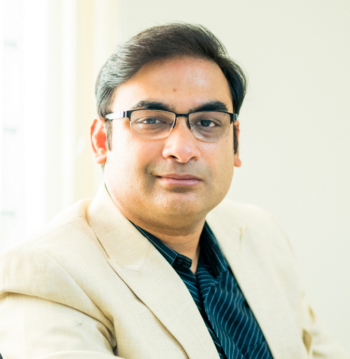
Dipanjan Chakraborty is the co-founder & director of ZeiniX Life Sciences in India. ZeiniX markets cutting edge biotech innovations with a socio-medical impact. Dipanjan is passionate about molecular diagnostics for infections. He has published several articles on Diagnostic Stewardship & AMR at ICU and clinical impact of molecular diagnostics in life threatening infections. Dipanjan aims to contribute to curbing AMR by writing on this global healthcare crisis (his own insights as well as compilation of recent developments), sharing new information/news/research articles etc in social media among his network, enhancing AMR awareness among his social & professional network and undertaking relevant activities in collaboration with ambassadors of AMR Insights.
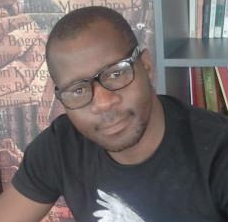
Stephen Matenga is the Secretary General of the National Association of Freelance Journalists in Zimbabwe. The association has over 200 members from across the country freelancing for various media organisations. Stephen’s work is mainly administering the activities of the organisation. At the moment the organisation is establishing its own online media outlet which shall be launched in October. Stephen intends to curb Antimicrobial Resistance by educating and creating awareness through the following methods: by dedicating a section of the forthcoming publication to Antimicrobial Resistance education and coverage, setting up workshops to train journalists in understanding the topic so that through their coverage the public will be informed, and by engaging communities and policy makers on policy and interventions.
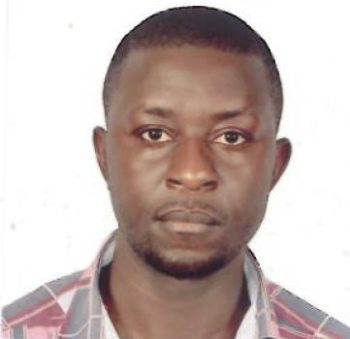
Arnold Ayebarr is a microbiologist with laboratory technologist background working for Partners In Health, Liberia. Arnold is currently working in the South-east of Liberia to set up a referral microbiology lab whose main aim is to start generating AMR surveillance data for the WHO GLASS reporting tool. He is stationed at JJ Dossen Hospital in Harper, Maryland County. According Arnold currently no microbiology testing is carried out in the South-east region of Liberia: AMR is actually considered a bigger threat in low-resource settings since there is no evidence guided treatment. Arnold is tasked with Training lab personnel on microbiological test procedures with a major bias to bacterial infections. He is also helping to get the lab to SLIPTA accreditation for Quality Management System. Earlier he was involved in publications regarding CNS infections, MRSA nasal carriage & TB diagnosis & treatment studies.
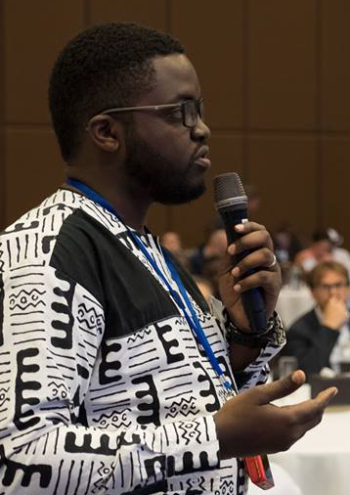
Peter Babigumira Ahabwe works as a Senior Program Pharmacist at the Infectious Diseases Institute (IDI), Makerere University in Uganda. He serves as an interface between the IDI and the Ministry of Health on projects where science and policy overlap. He contributes to achieving Global Health Security Agenda targets in Uganda. Peter represents IDI on the National AMR Technical working committee for Antimicrobial Stewardship and Optimal Use, Logistics and Coordination Subcommittees of the National Task force, AMR Conference Planning and Scientific committees and Appropriate Medicines Use Advisory Group. He has supported the development of National Guidelines for Antibiotic stewardship. Peter also coordinates the GPPS data submission in Uganda and gives strategic oversights to the Antimicrobial Resistance (AMR) eLearning and call center at IDI. Peter intends to revitalize Medicine and Therapeutics committees of hospitals as an entry point for Antibiotic Stewardship interventions. Also he hopes to measure the burden of inappropriate antibiotic use in public health emergencies and disasters.

Denise Delaney is a Senior Director working at Sustainability in London, UK. She leads strategy and stakeholder engagement projects and is an expert in the pharma and healthcare arena. Denise has international experience working with both national and global development organizations and NGOs (including UN’s ECLAC and UNHCR), mainly in Latin America and India. Denise has led SustainAbility’s work on the topic of AMR. The company became involved in the topic in 2017 after the landmark year of emphasis on AMR (2016). SustainAbility worked closely with the AMR Industry Alliance to develop a measurement framework and deliver the very first report on the progress made against its commitments. Denise believes that industry has a clear role to play in tackling AMR – from the science and innovation, to ensuring access while also promoting stewardship, to limiting the environmental impact of manufacturing. She regularly raises the alarm and builds awareness in her work on AMR.
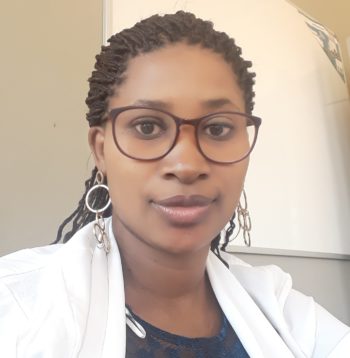
Tholwana Pelokgosi works as a Medical Laboratory Scientist at the Ministry of Health in Botswana. Tholwana currently works in the Microbiology Laboratory. This lab receives patient samples and processes these by culturing in order to do biochemical and antimicrobial susceptibility tests. Then they release results to the clinicians who will then assist patients based on the outcome of the results. Her current contribution to curbing AMR is emphasizing that the updated Clinical and Laboratory Standard Institute guidelines are followed strictly when setting up antibiotics in a patient sample. She intends to be part of the antimicrobial stewardship committee in Botswana. Tholwana also intends to mentor young medical laboratory professionals and students on proper use of antibiotics and enlighten the about antimicrobial resistance. Tholwana was part of the team that was validating Botswana’s action plan on AMR. She intends to apply for Masters in AMR to become part of the policy makers in Botswana.
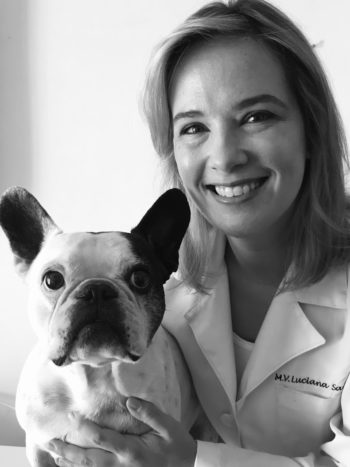
Luciana Sartori is a Clinical Microbiologist and Infectologist as well as a General Coordinator at Animal Care Ipiranga Veterinary Hospital, Ipiranga in Brasil. Her intended contribution to curbing AMR is to exchange ideas and protocols on nosocomial infections in veterinary medicine. She will also contribute by sharing her knowledge of AMR in production and companion animals.
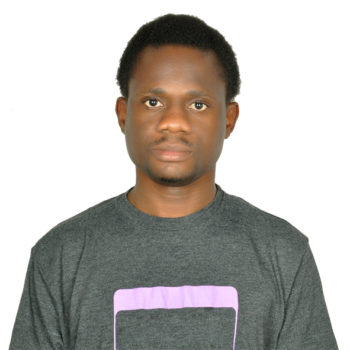
Yinka Odebode is a Lecturer/ Research Scientist at Kabale University in Uganda. He teaches, supervises and does community service as a responsible citizen. His intended contribution to curbing AMR is to highlight the need for an improved understanding of the mechanisms and processes that underlie emergence and spread of resistance, create awareness about infections, and give attention to methods that can be used to prevent and control them. Yinka is also doing research work on environmental reservoirs of AMR in Uganda. He will continue to collaborate to detect and monitor resistance for the effective management of fungal diseases towards sustainable food production systems and resilient agricultural practices.
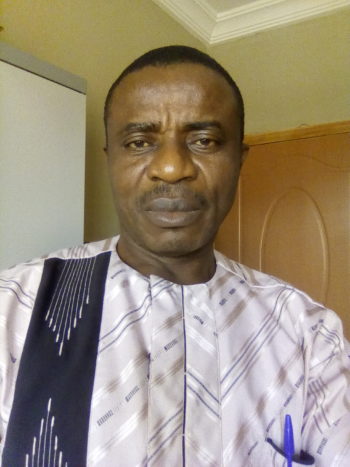
Raymond Okechukwu is Assistant Director of Pharmaceutical Services in the Centre for Community Medicine and Primary Healthcare, of the Nnamdi Azikiwe University Teaching Hospital, Nnewi, Nigeria. He provides pharmaceutical care and hospital pharmacy services to ambulatory, intensive care and hospitalized patients. He is a member of the ‘Global Advocates for Quality and Safety in Healthcare’ and Assistant Chair of the Quality Improvement Committee of the teaching hospital. Also he is the responsible officer for Inventory and Logistics Management Information System (LMIS) for the National HIV / AIDS Care, Malaria and TB Control Program in the Centre. As the lead researcher in the hospital-wide antimicrobial stewardship programme he concluded the baseline survey of the “Perceptions, Attitudes And Practices Of Antimicrobial Stewardship Among Health Workers In A Nigerian University Teaching Hospital.”
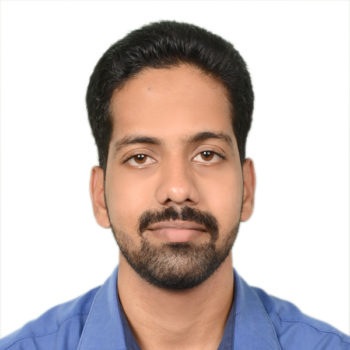
Mohammed Zabiuddin Ahad has completed his PharmD degree from Manipal Academy of Higher Education, Manipal, India. Since then he is working with a research team with primary focus on Antimicrobial Stewardship. He is currently engaged in a project funded by Indian Council of Medical Research (ICMR) titled “Initiating Antimicrobial Stewardship Activities in Hospitals in India”, a program run at Kasturba Hospital, Manipal, a 2000 bedded tertiary care teaching hospital in the southern part of India. As part of WAAW and other educational events, he has coordinated multiple teams of volunteers and created awareness among community pharmacists on AMR.

Eriola-Sophia Shanko is the founder and CEO of ShanX Medtech in The Netherlands. The company’s vision is to create a more sustainable and safe future by raising awareness and delivering high-end diagnostic platforms to combat AMR. She sees many frontiers to tackle AMR: raising awareness, developing diagnostic tools and new drug formulations or implementing new policies. In her company she focuses on developing rapid and high precision diagnostic platforms for drug testing. This way they hope to assist the doctor to the appropriate drug prescription based on scientific data and not empirical use. Eriola is highly motivated to add to raising global awareness on AMR by becoming an AMR ambassador.
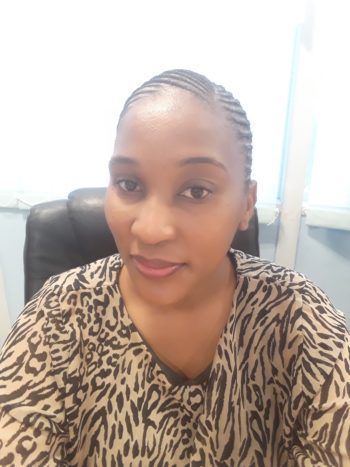
Wame Kgwakgwe, works for Water Utilities Corporation (WUC) which is an organization that provides drinking water and waste water services throughout Botswana. Wame is responsible for Laboratory quality management system implementation, test facilities, effluent analyses through quality control tests, internal auditing and much more. Wame is committed to collaborate with NGOs to raise awareness on AMR, conduct presentations at her workplace on AMR, encourage AMR related research and promote awareness by holding workshops/conferences to present AMR related research findings. Last but not least she will share AMR related information with other AMR ambassadors and work closely with WHO on different initiatives to curb AMR.
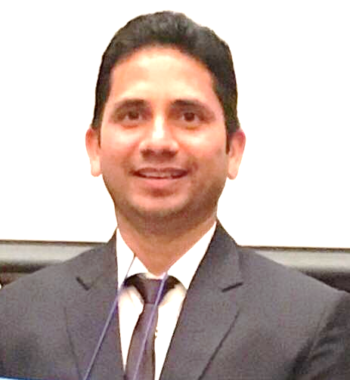
Shamshul Ansari, currently Assistant Professor in Microbiology and Immunology at Chitwan Medical College, Bharatpur, Nepal. Shamshul obtained his PhD at Oita University Faculty of Medicine, Oita, Japan and has been teaching microbiology and infectious diseases. In research he has a keen interest in AMR and has published several papers in high impact journals. Although a challenging problem across the world AMR is more problematic in developing countries like Nepal. The lack of national guidelines regarding prescription of antibiotics and the lack of sufficient knowledge about consequences of the (mis)use of antibiotics on community level contribute to resistance development. Expert professionals need to work on these issues to combat the antimicrobial resistance development. “Use antibiotics judicially to combat the development of resistance”.
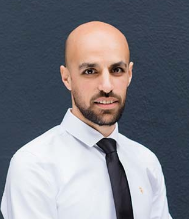
Amine Zorgani, R&D Microbiology Manager and team leader at Nuritas in Ireland. He leads a team of experienced Microbiologists to uncover the potential bioactivities of plant-derived peptides. Ireland-based Nuritas uses artificial intelligence to predict bioactive peptides from plant genomes to target several (ESKAPE) human pathogens and food spoiling microbes.The mission of Nuritas is to find new antimicrobial therapies from a natural origin. Amine started his fight against AMR during his Ph.D. study. When he started working with Nuritas in 2017 he realised that his journey with AMR had just started…


